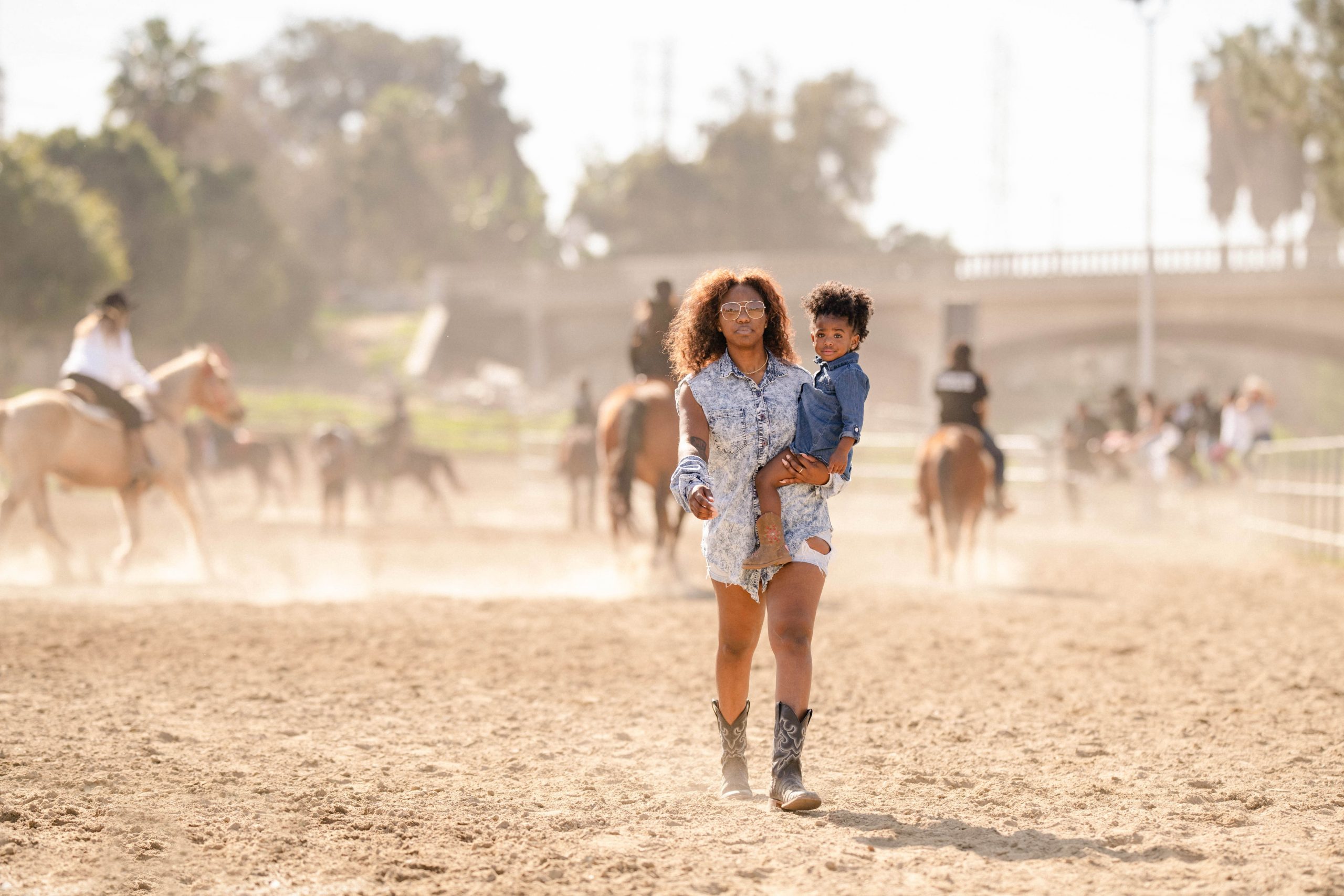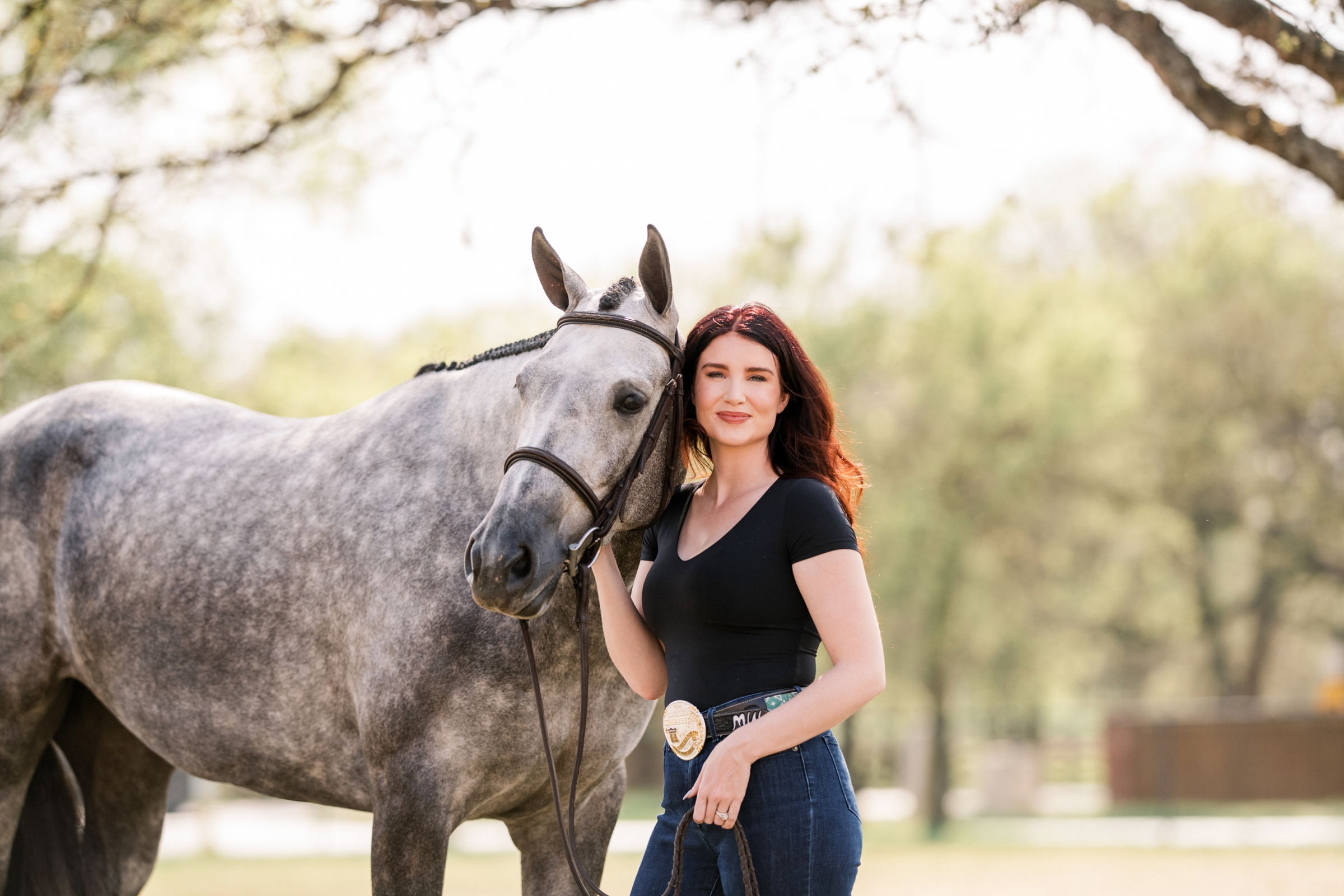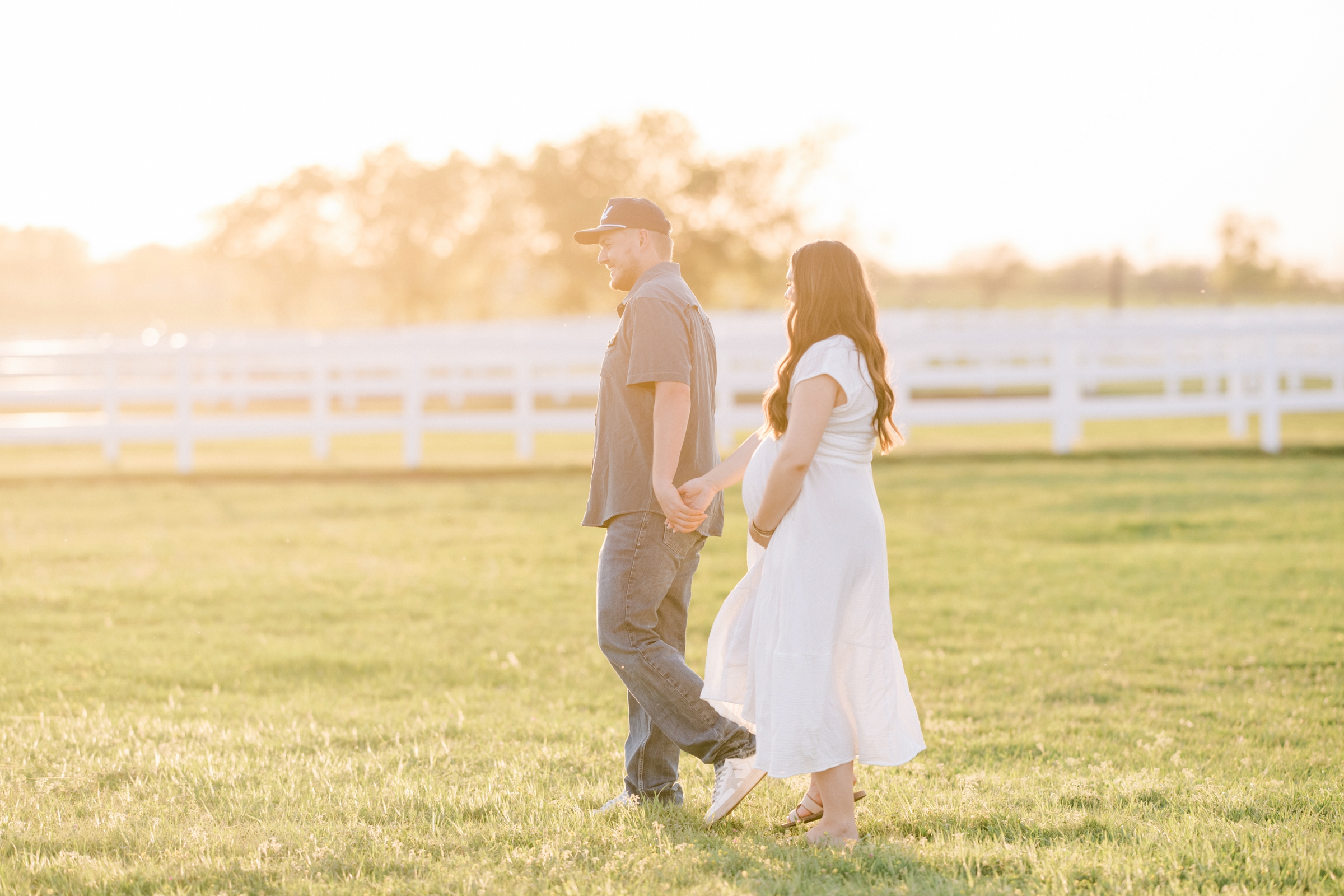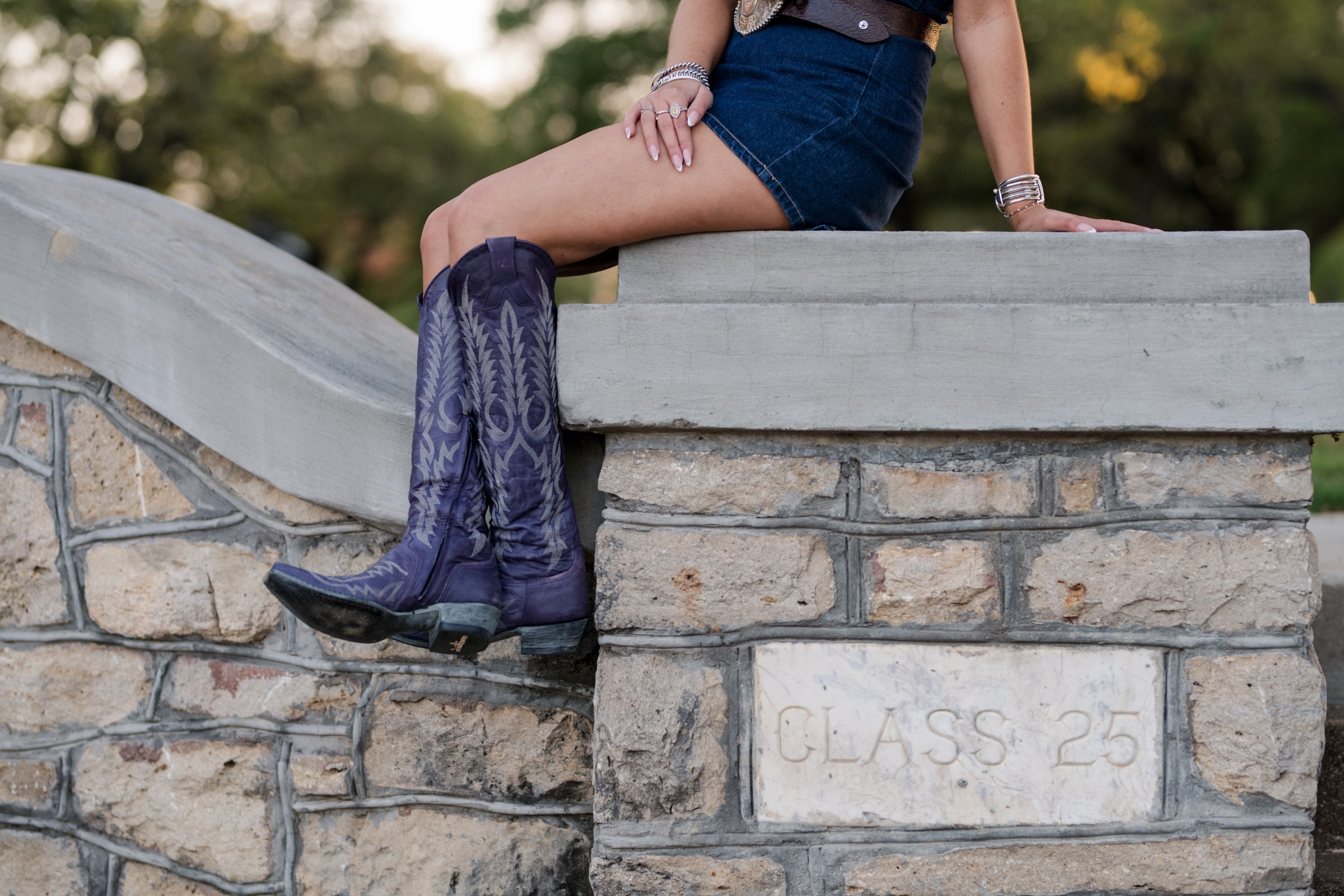As horse lovers, you and I know that horses heal humans. Many of us have been given love, purpose, opportunities, and endless life lessons from the back of our steeds.
Last year I had the opportunity to photograph merchandise for the Compton Cowboys in California (recently shared in Western Horseman Magazine). The second part of that session was dedicated to highlighting Kika, a female member of their group nicknamed “The Compton CowGirl”. Kika is a mother, a barrel racer, and a black cowgirl who spends time giving back to the Compton community.
The Compton Cowboys (including Kika) are lifelong friends who have joined together to lift their community in Compton through horseback riding at their mentorship program called Compton Junior Equestrians. Through riding lessons and programs for at-risk youth in Compton, the Compton Junior Posse is a 501-c3 committed to giving these young men and women a brighter future. When you support the Compton Cowboys, you support the Compton Junior Equestrians.
The morning I spent with the Compton Cowboys was one of the best memories of my life. Their joy and energy are infectious. I cannot overstate how genuine this group of horse-obsessed equestrians. They are making enormous contributions to their city in Compton while inspiring people across the globe. Please consider supporting them by sharing their social media accounts, buying their merchandise, and donating to their non-profit organization.
Follow the Compton Cowboys on Instagram here.
Shop CC Merch here.
The Compton Cowgirl
Keiara Monique—nickname Kika—grew up in Compton, California, and she’s a second-generation barrel racer. She worked her way up through the barrel racing ranks before setting aside horses to pursue a degree in nursing. Today she’s 31, back in the horse world, caring for her family and striving to make the world a better place.
While the pandemic has put a hold on Keiara’s work with the Compton Junior Equestrians, and a twist in her plans to open a non-profit (more on that in a minute), she’s not discouraged. She sat down with writer Abigail Boatwright to talk about what horses mean to her, how she’s introducing her 3-year-old daughter Taylor to horses, what drives her to achieve her dreams, and her thoughts on the groundbreaking shifts happening in our country’s understanding of racism.
Abigail: First off, how are you doing? Living in California, you’re still under a stay-at-home order due to COVID-19. How has that affected you?
Keiara: I’ve had to be flexible and adaptable, especially with having my daughter. But I’m doing good. My faith is strong. I feel like the world wasn’t operating how it was created to be, and we’ve gotten to where our success is based on how we live and how we represent ourselves. To me, that’s not truly success. I believe the pandemic is a way of God reminding us he’s in control. We forgot about him, but even with all the money in the world, you can’t buy yourself out of this crisis.
So I’m thankful for my faith, and I appreciate this time. It’s helped me slow down even more. I’ve been working on getting balanced, and more structured on the things I want to work on within myself.
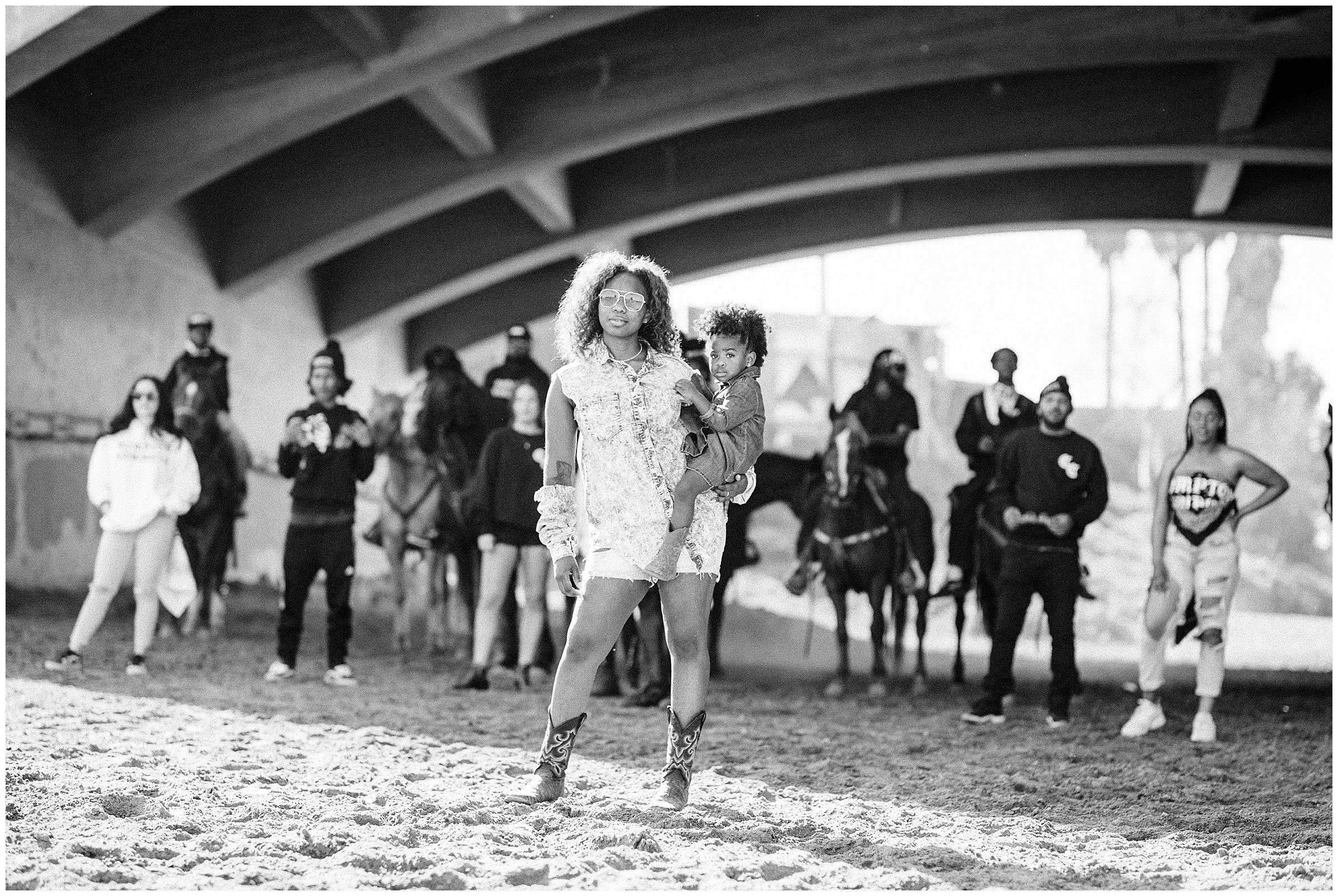
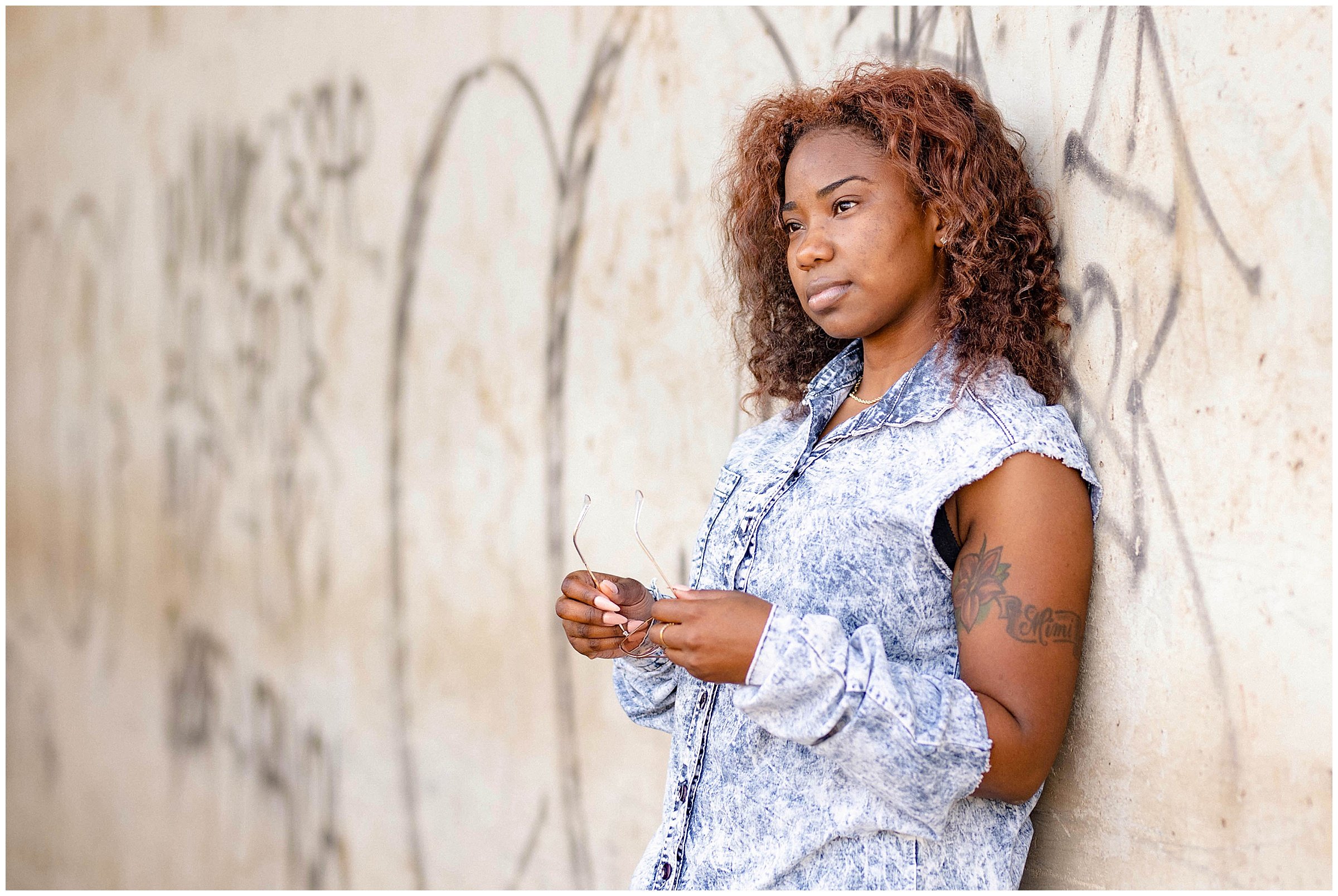
A: Can you talk to us about how horses have shaped your life?
K: Growing up, my household was dysfunctional. Our communication was off. Alcoholism runs in my family, including my grandfather. My mom’s drinking started when I was young, and I didn’t understand what it was doing in my household. She would drink on the weekends, and it would cause conflict between us.
The weekends were also when I got to go to barrel races with my mom. I had a lot of anger, but it was really hurt by a lot of things happening in my life. The way I expressed it was by lashing out. And the barrel races went from being my only peace to being taken away.
But when I was 16, I got my license, and my own horse, and I was able to go to the barn and ride my horse every day after school, instead of only on the weekends. I believe that is what kept me sane. There was so much I was dealing with at home, but I would go out and ride my horse every day. It felt like when I stepped onto the ground at the barn, everything changed. I had no worries, no thought of anything going on outside of me being there with my horse.
Horses have impacted pretty much everything about me. They helped me be more disciplined. They taught me a lot of responsibility. As a teen, I had to care for the horse, I had to go get feed at the feed store, I had to manage my money and my time. Horses gave me peace, but I didn’t understand any of that until I went to college in Texas, and I didn’t have a horse, so I didn’t have that outlet. Horses had kept me grounded, but It took some time for me to understand how much I need my horses.
When my brother passed away in 2014 and then soon after, when my old horse I had back home also passed away, I felt lost. My only outlet was riding horses. That’s all I knew as a way to cope. So when I didn’t have horses, I didn’t know how to deal with it.
But in 2015, I was given a horse, and I am so thankful. It gave me back that peace. It helped me understand how important they are to me.
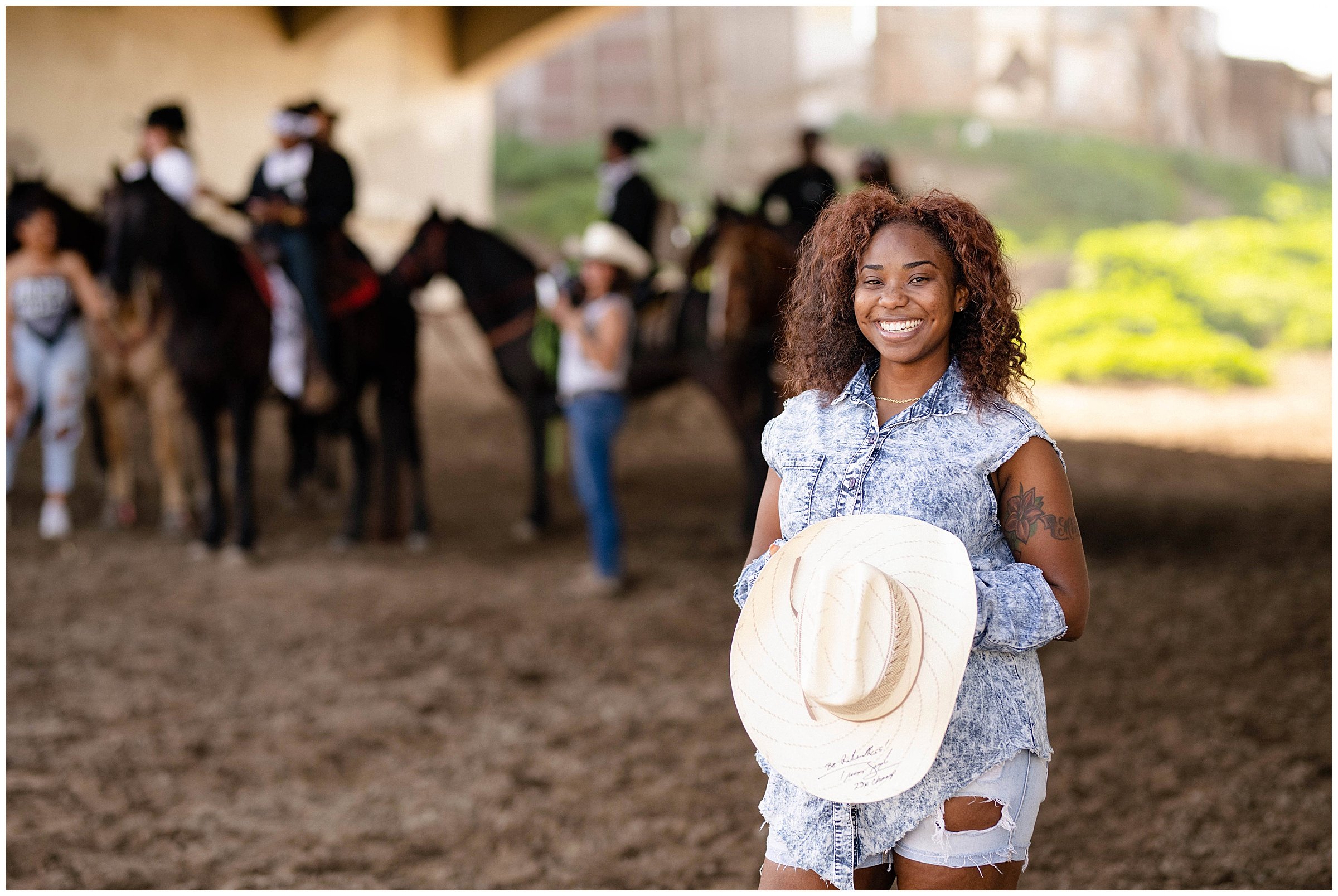
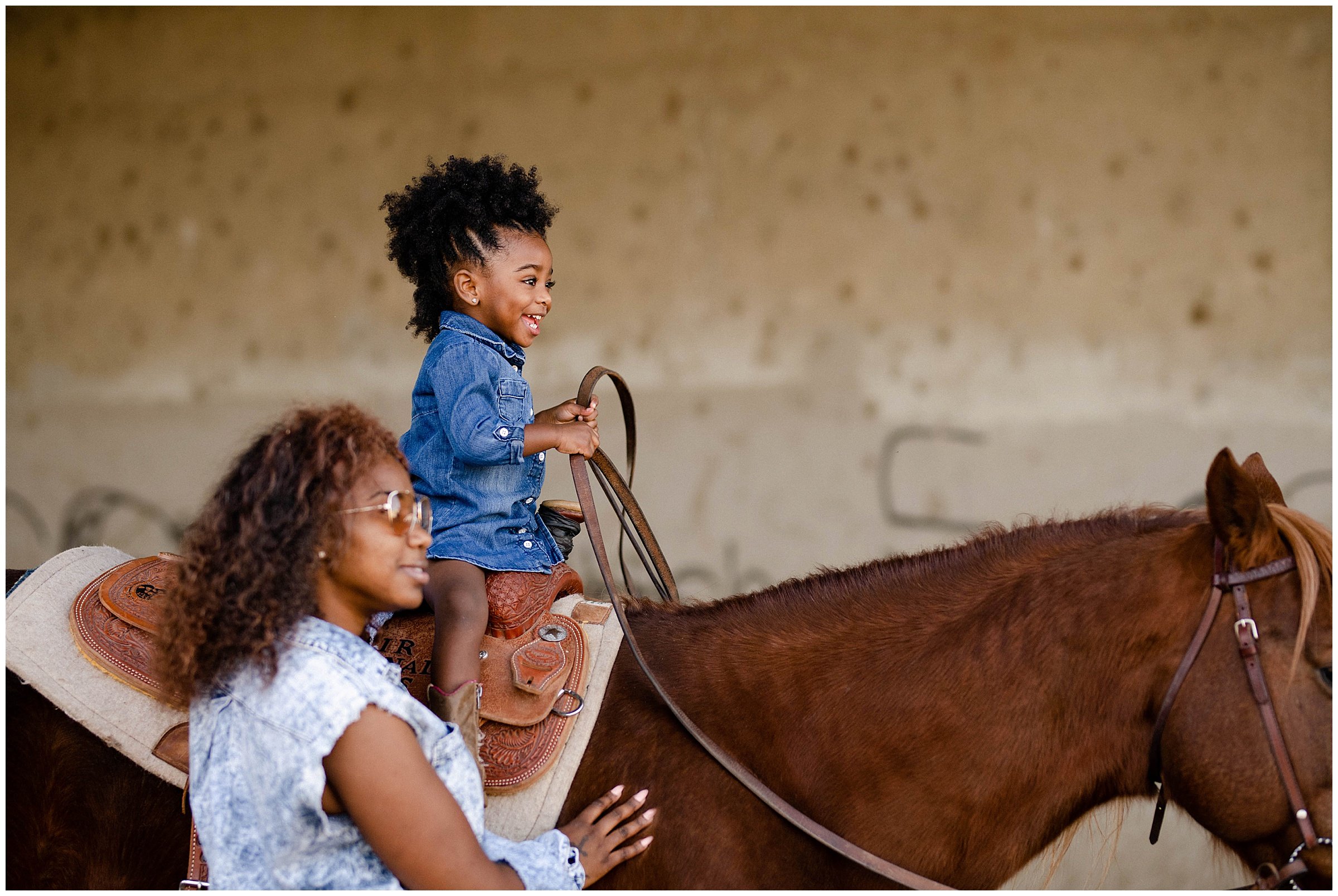
A: Tell us about your horse, and what she means to you.
K: She’s a Quarter Horse named Penny, and she’s 15 now. She’s the horse version of me. She’s very particular about how you treat her and handle her. If I’m in a bad mood, if I pull up to the barn and try to ride her, she won’t be responsive to me if I’m not handling her correctly. She’ll let me know, and she helps me have awareness of myself. I’ll check myself, walk around, get myself together and get clarity mentally and spiritually. She’s constantly reminding me of growth. Even if I don’t ride her, if I just go see her, she helps my energy.

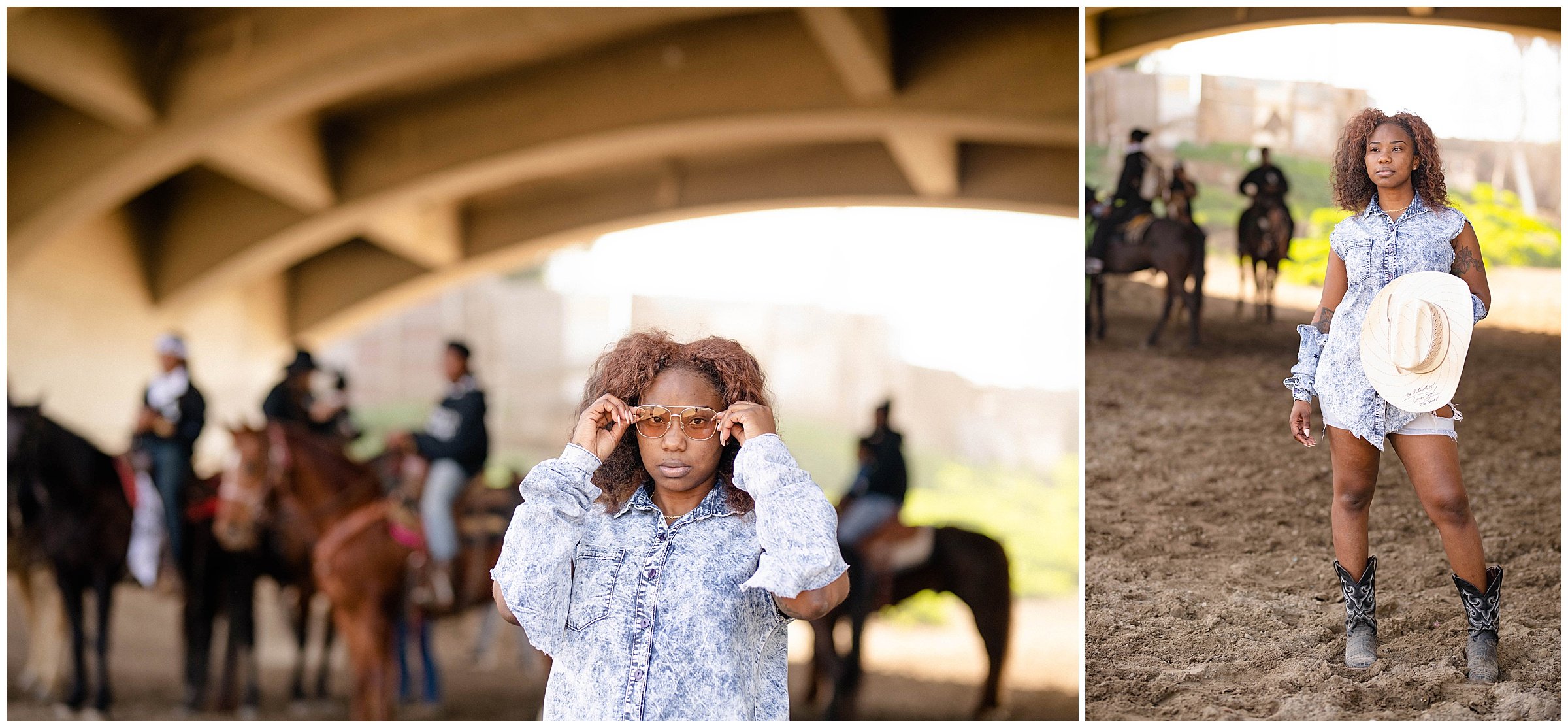
A: Is your daughter Taylor riding yet? What does she think of horses?
K: I’m teaching her how to ride by herself now. She’s 3, and she’s at the stage where she wants to do it on her own. I am so thankful for my horse. Even though she has her moments, she recognizes the difference between my daughter and me. She’s a good horse—not every horse does that. My daughter is fearless, and she challenges anything. But my horse knows when she’s trying to do something with her and she just goes with it, but she looks at me like “What is she doing?”
So they’re creating their own bond, and I’m just in that space with them. Like this is my daughter’s horse and I’m just getting the horse ready for Taylor. She has her own saddle now so she can be comfortable. She was on a lunge line today, and she was controlling the horse while she’s walking around. Taylor is very helpful—she’s been helping me clean stalls since she was 1. She has her own little rake because she had to. I’m just allowing her to be the best she can be and express herself.
I am so appreciative of my horse, because she challenges me and helps me become better. Every day, I strive to be a better person for my daughter. I believe in order for her to be her best, I have to be my best. I’m constantly challenged by my daughter, and also by my horse. Those are the two different languages that I have to speak.
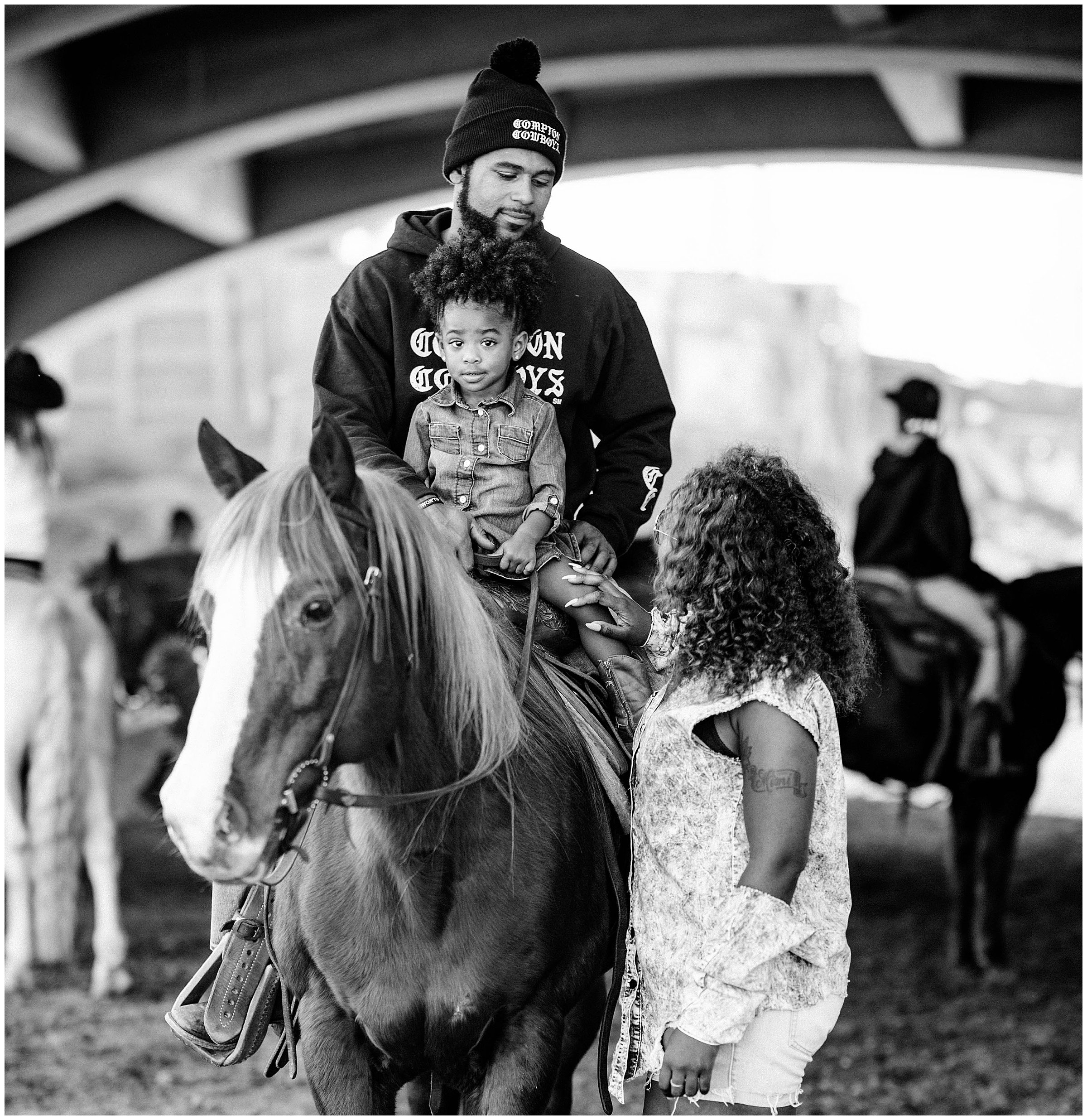
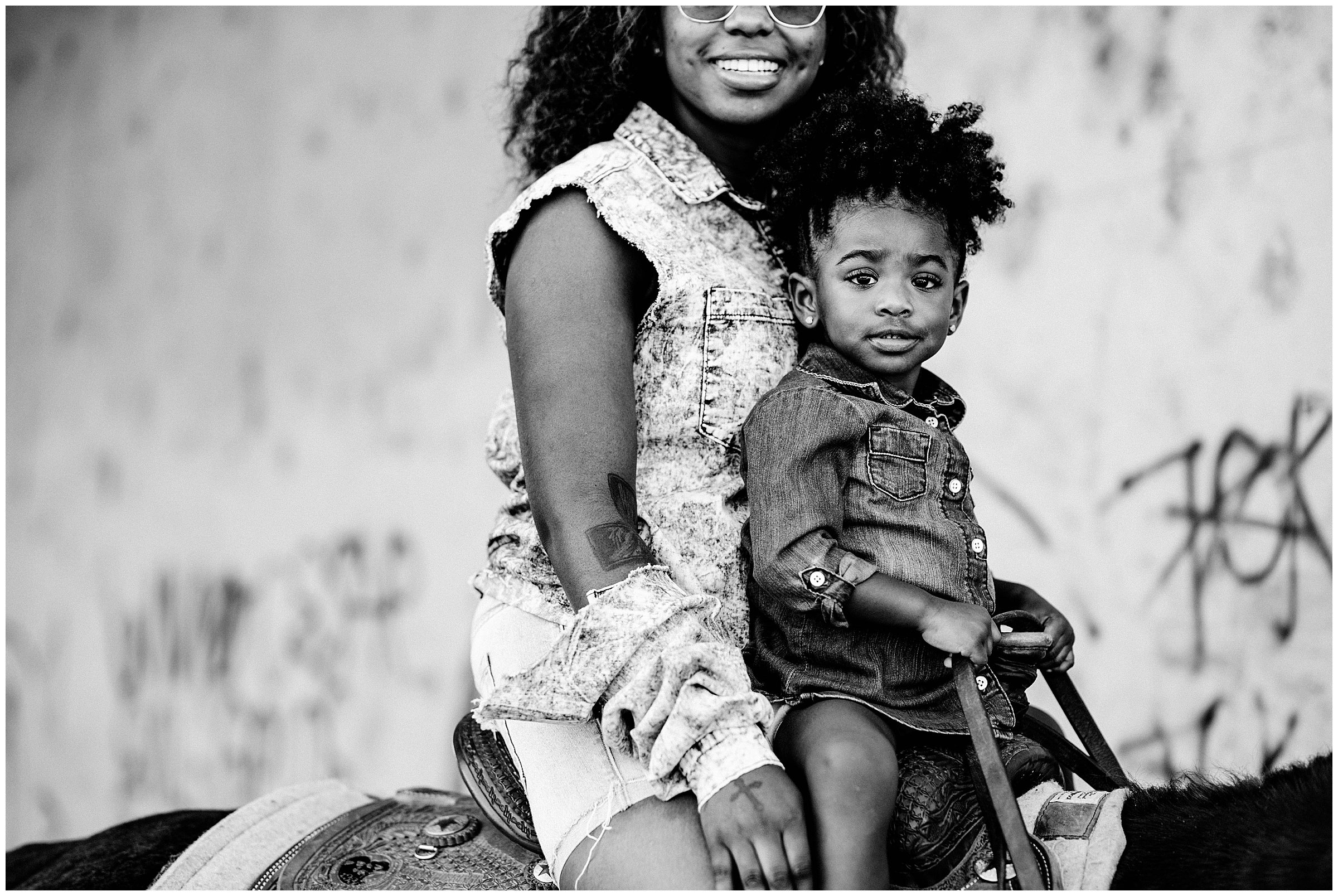
A: Have you ever gotten pushback from anybody for doing horses?
K: Every school I went to, I was the only person who rode horses. People would tell me, “You don’t look like you ride horses.” One, I’m Black, and two, I was dyeing my hair, I had my long nails, my jewelry, my earrings. So I didn’t look like I rode horses.
Then I would go to the horse community—again, I didn’t look like I rode horses. But this is what I am so very passionate about. The way I present myself has nothing to do with my heart.
But I didn’t get any pushback, and I think it’s because I’m a very strong-willed individual. My mom did when she was younger. But I love to tell everybody I ride horses. I love horses. But I’ve never changed who I was to try to look like someone that rides horses. When I ride my horse, I still wear my jewelry. This is who I am. I don’t take that away because of how people expect me to look. God gave me an inner strength and confidence, so I don’t care about what people had to say about me.
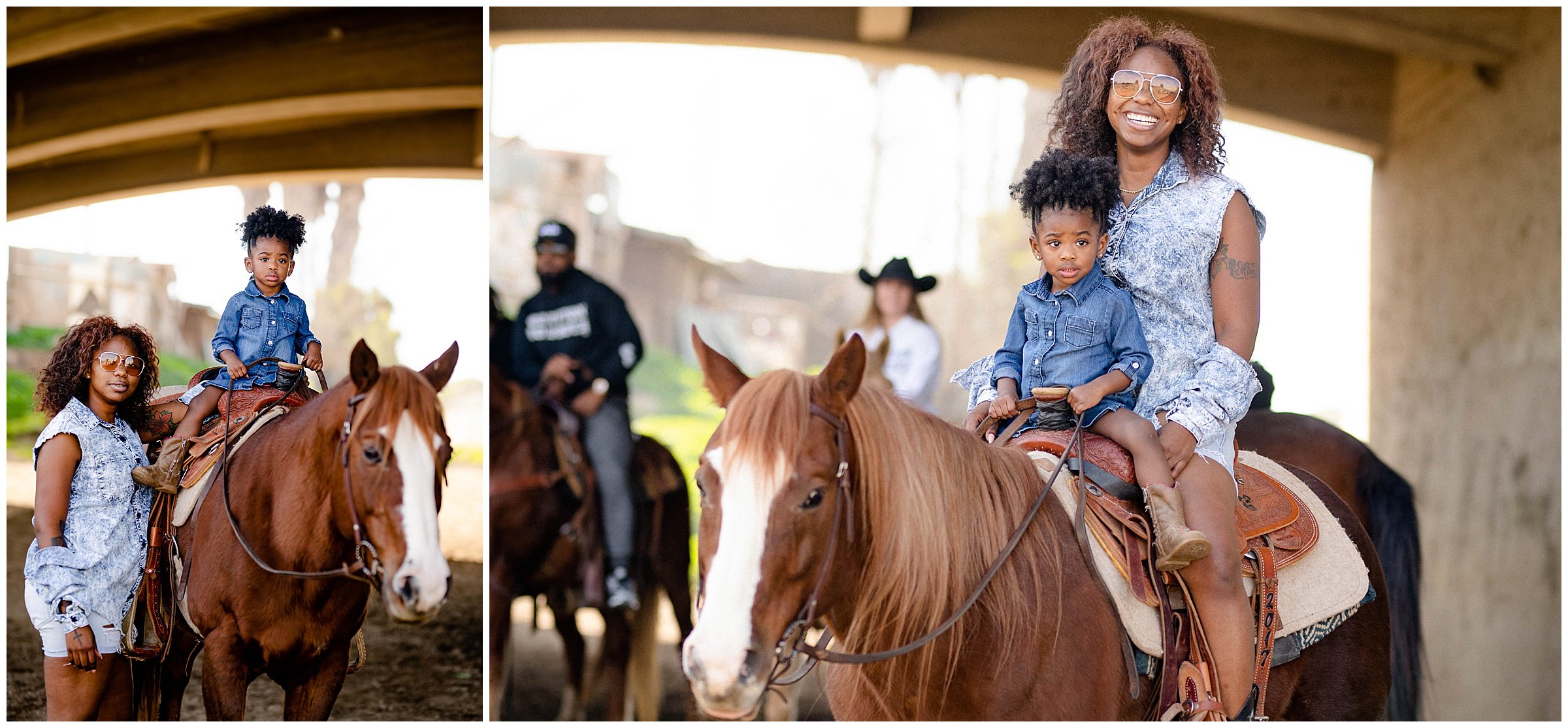
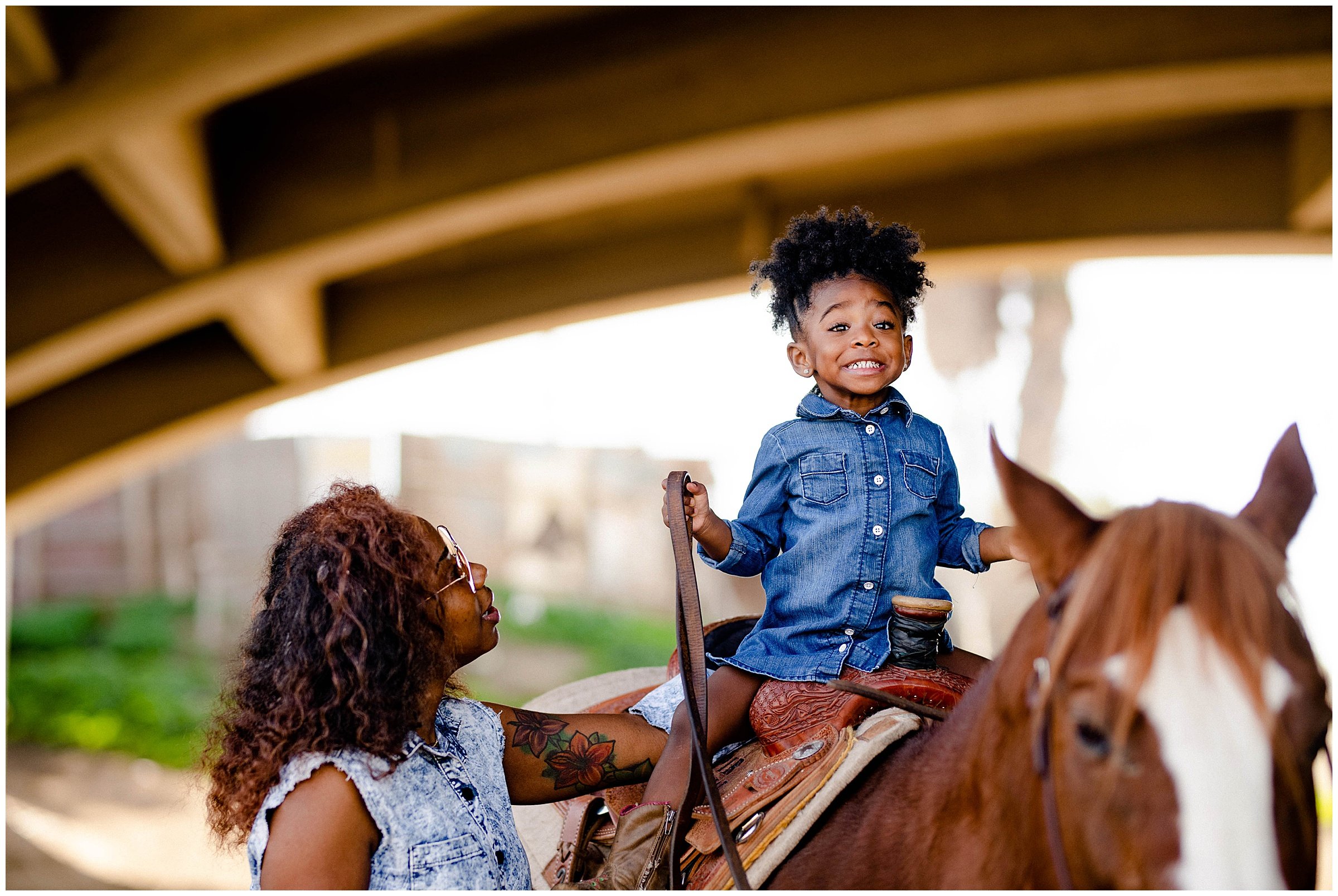
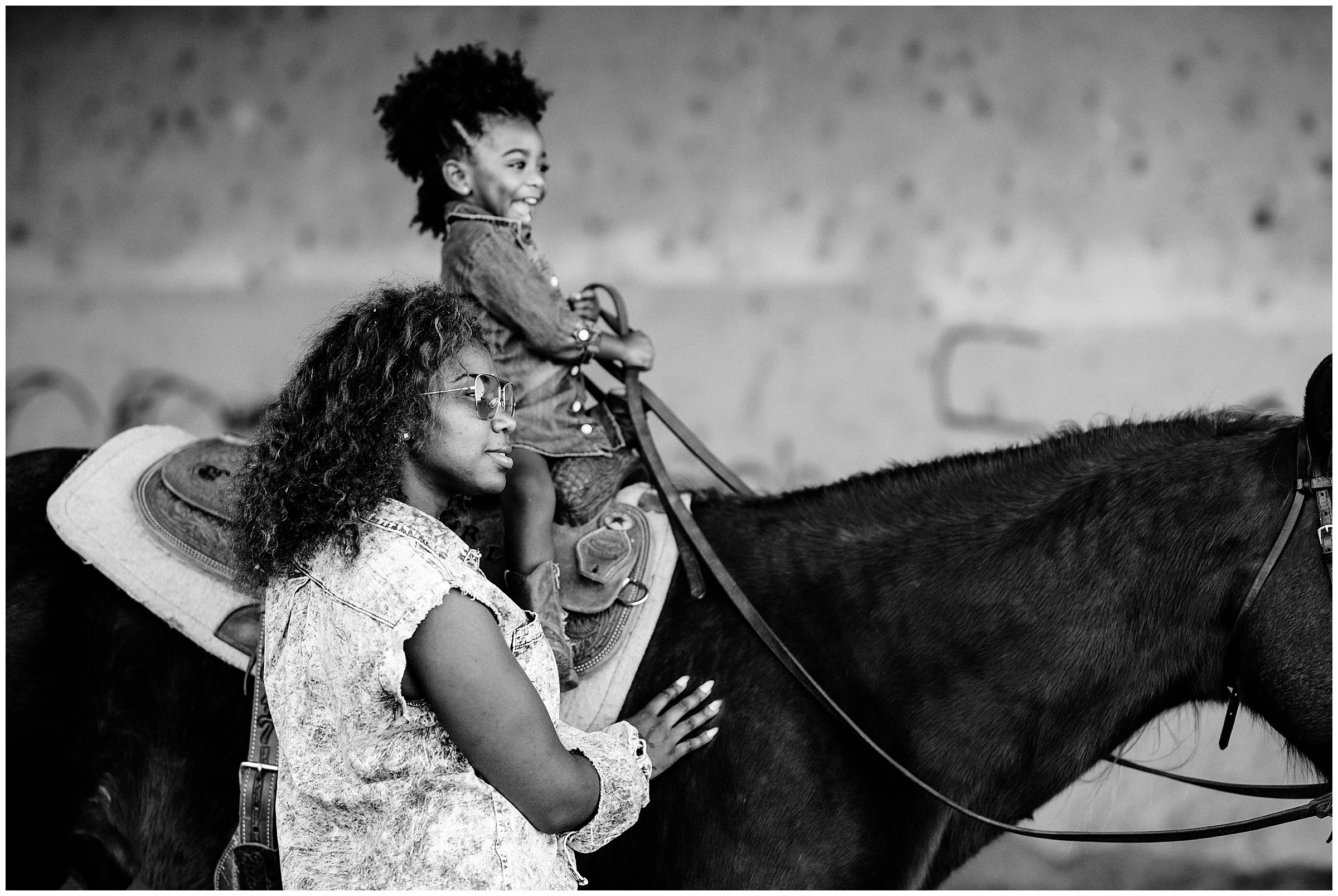
A: Why do you think it’s so important to introduce kids in the Black community to horses?
L: It’s very important because it’s not always common to be able to provide a positive outlet for us in our community. A lot of kids play sports, and that’s their positive outlet, but it can sometimes take away from school education if you make that your main focus to try to have a better life. But with horses, you develop a different perspective on life. Horses teach you how to have respect, how to be self-disciplined, how to communicate, how to have patience. With those skills, you can use them in your daily life. You don’t have to make it to be a professional rodeo athlete to be able to survive in the world with those skills.
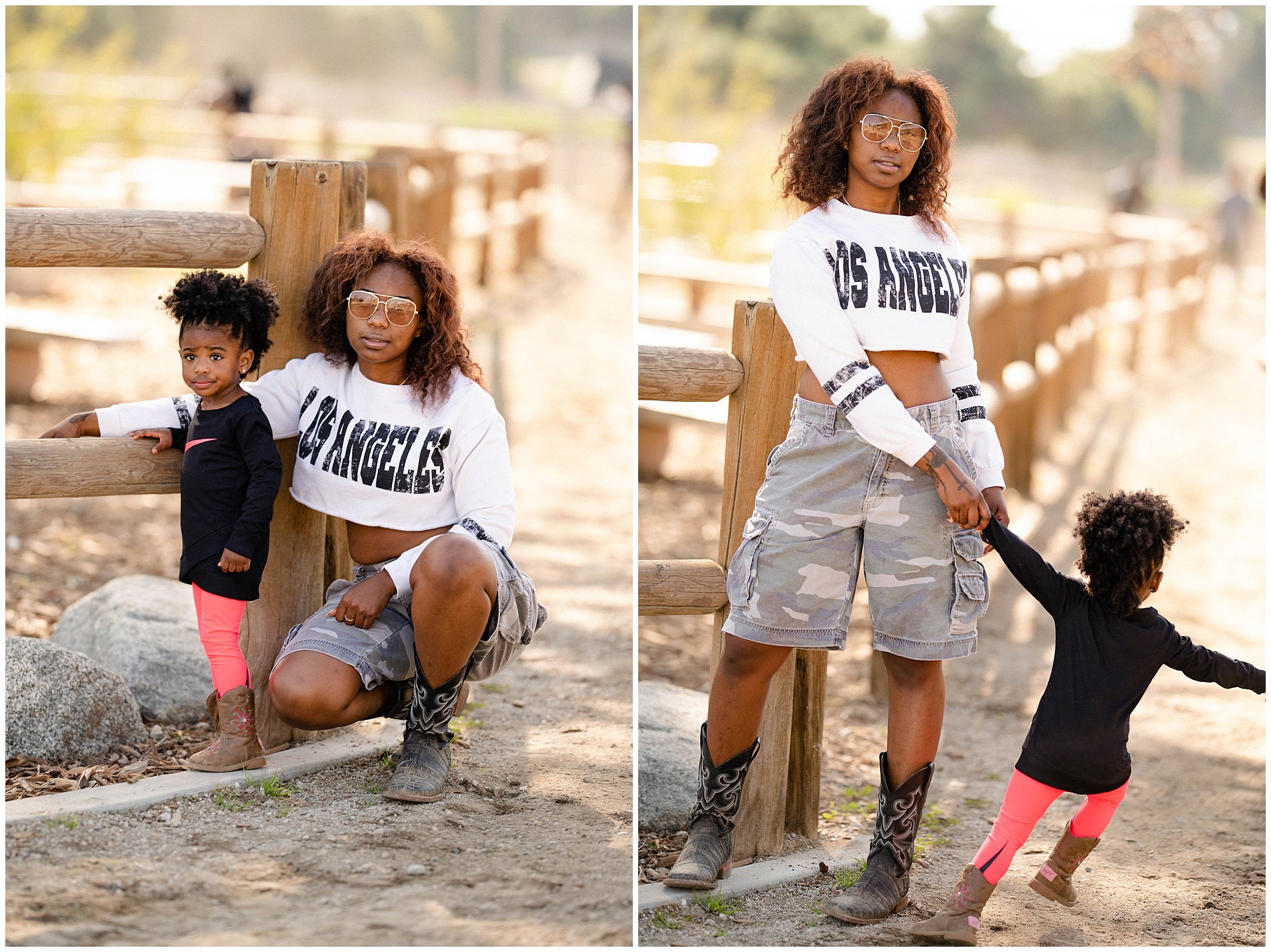
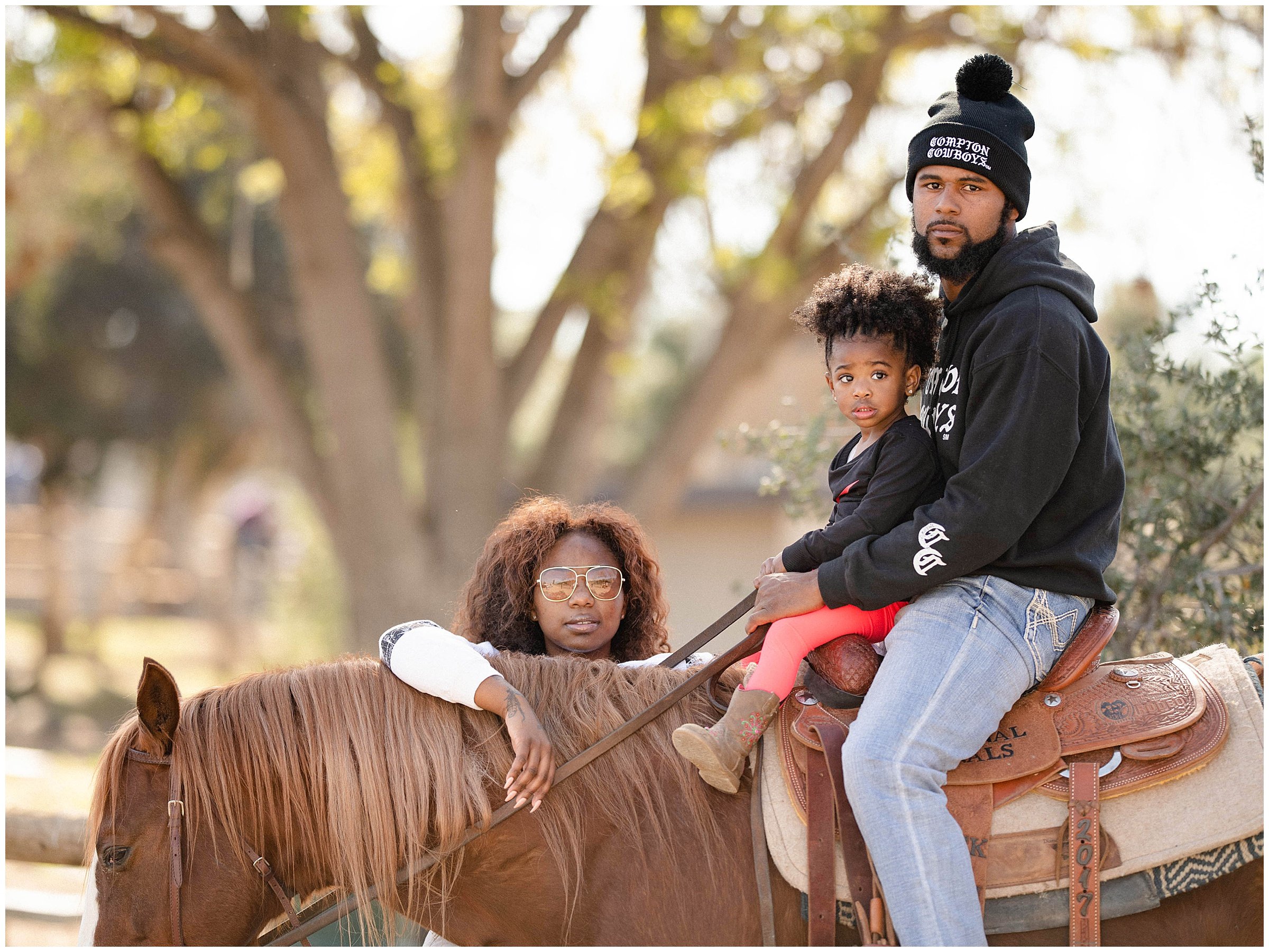
A: What’s going on now with the Compton Cowboys?
K: Our book came out on April 28th, and we were able to do a promo about it with Access Hollywood about two weeks ago. It was our first appearance since all of this happened.
We shot a campaign with Adidas right before the shutdown. But I had things lined up—I had a speaking engagement at a museum, and that got canceled.
Right now I’m doing a couple of solo projects. I’m working behind the scenes a lot while we wait for the return to a new normal. But I’m excited about what’s ahead.
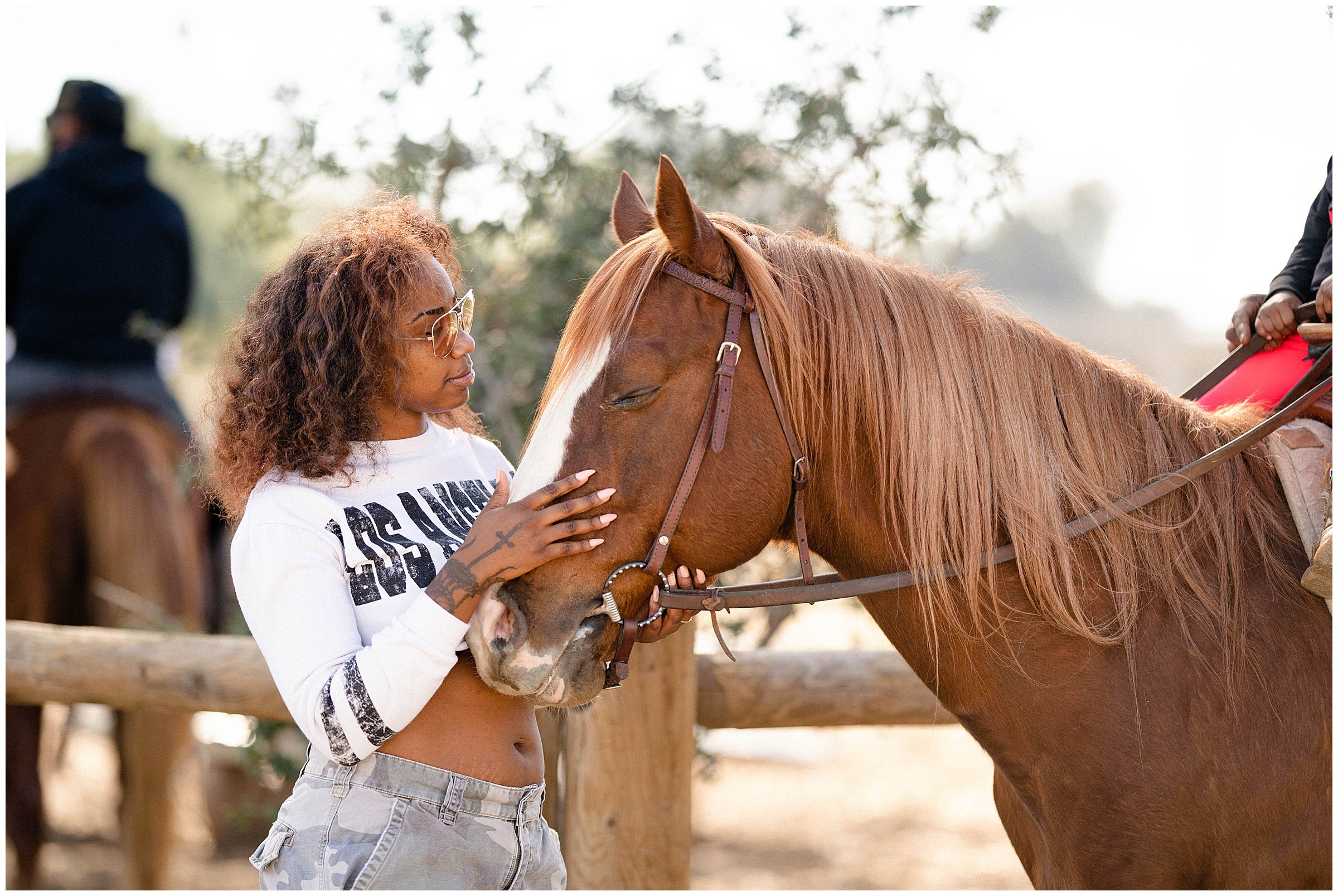
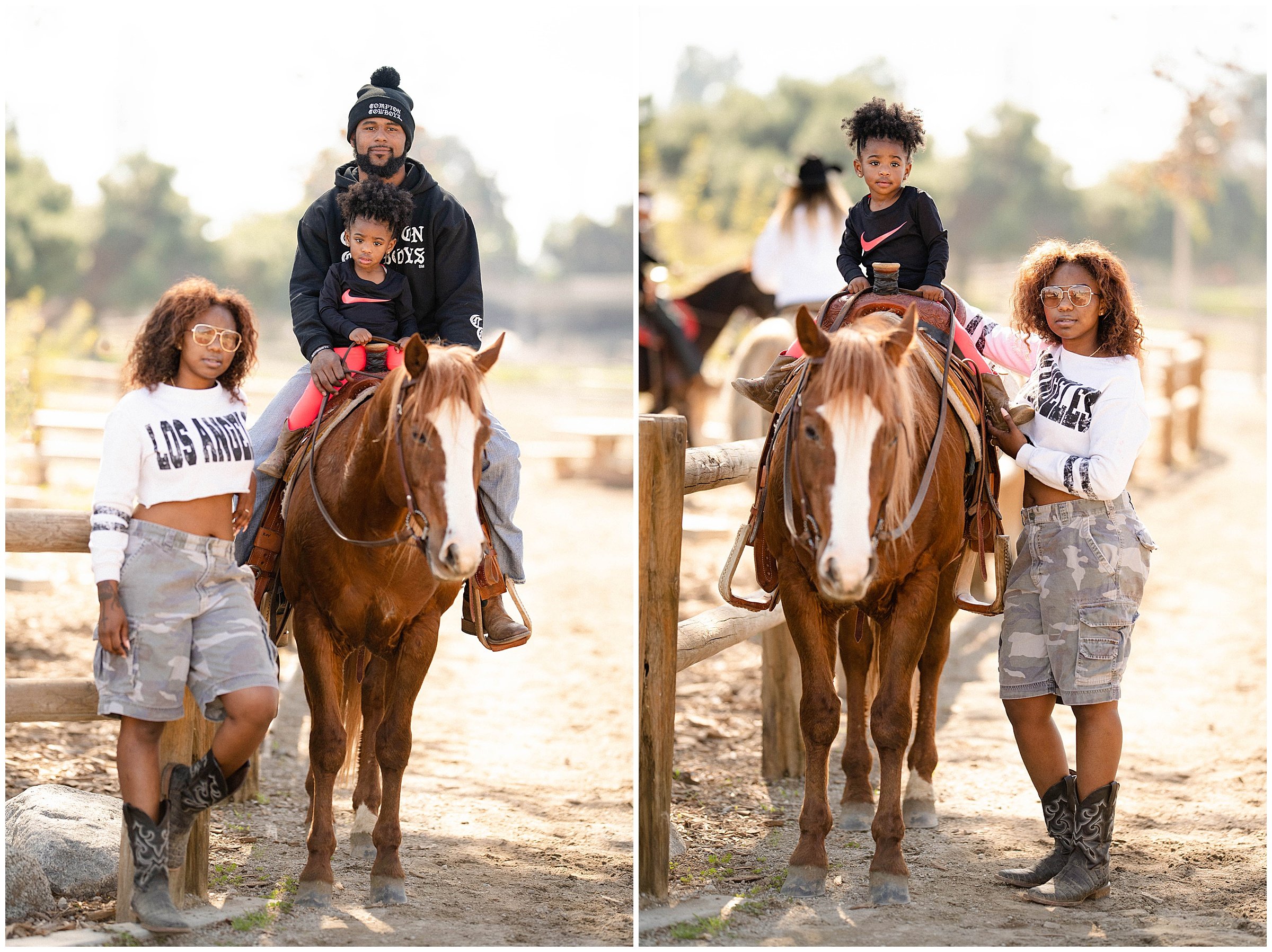
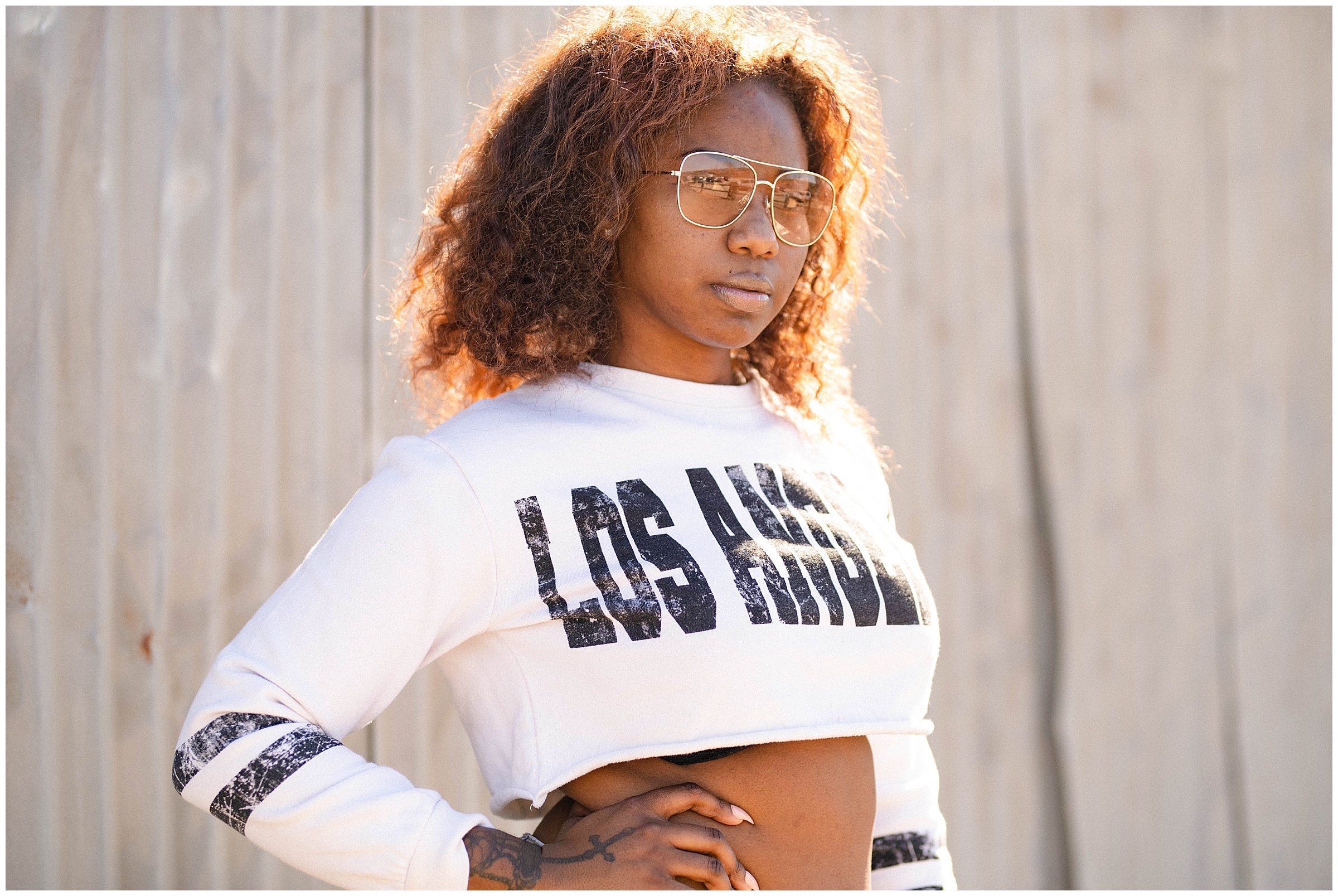
A: What is your motivation? What dreams are you working to achieve?
K: I honestly believe that I can make the world better, and I can change the world. Having a positive impact, even on one person, is a domino effect. It will keep on triggering all the way down.
Helping people is what drives me. I want to help people by helping them discover who they are, what their purpose is in life.
I have many entrepreneurial ideas I want to implement, but mental health is what I am mainly passionate about. I focused on psychology and then sociology in college because I wanted to understand why people do the things they do. But losing my brother while I was in college caused me to have really bad anxiety that I had never experienced before, and nobody in my family had either. So I had to seek my own help, learn what triggers me, and how to cope with it. That’s again, why I was so drawn to horses because they are my outlet.
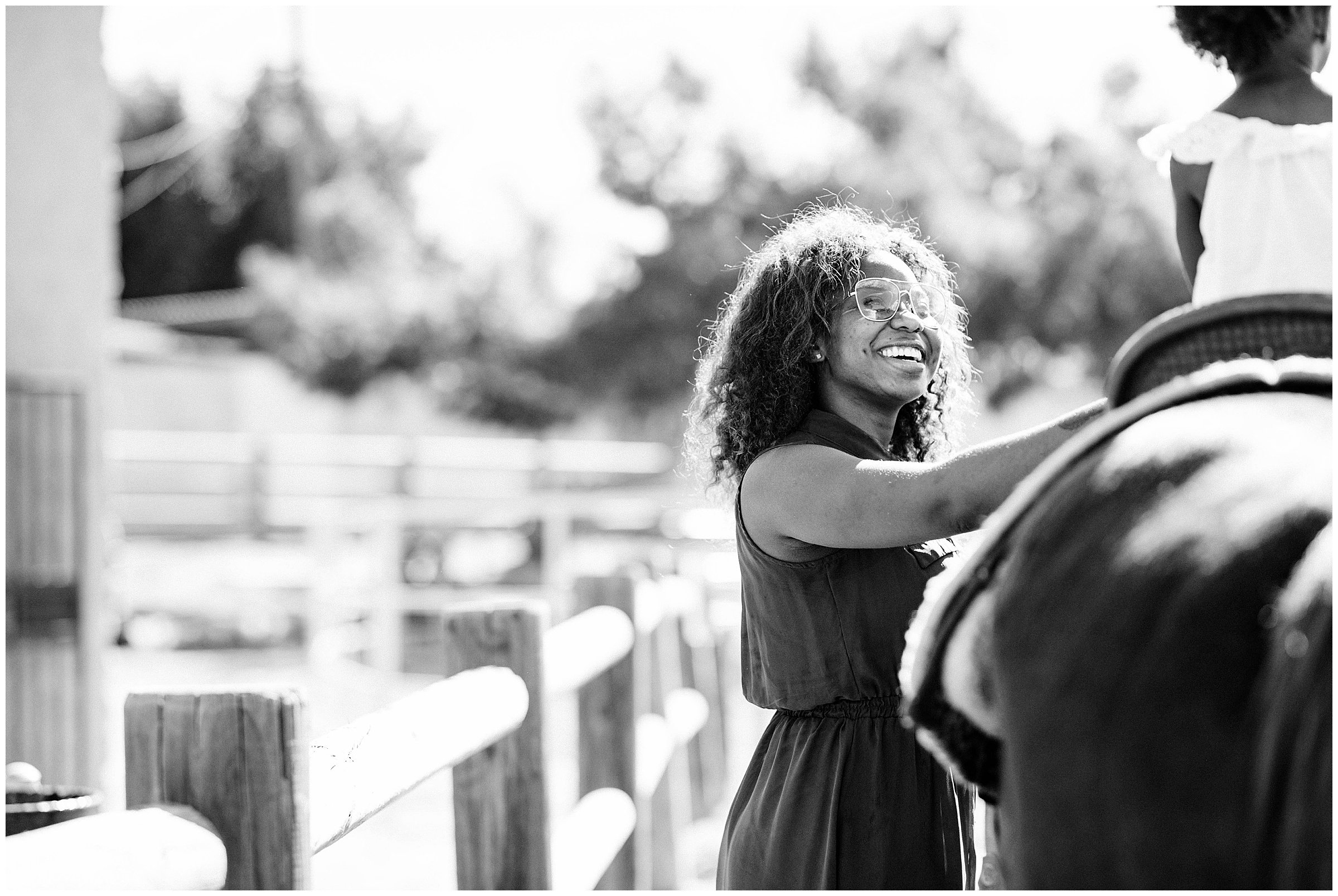
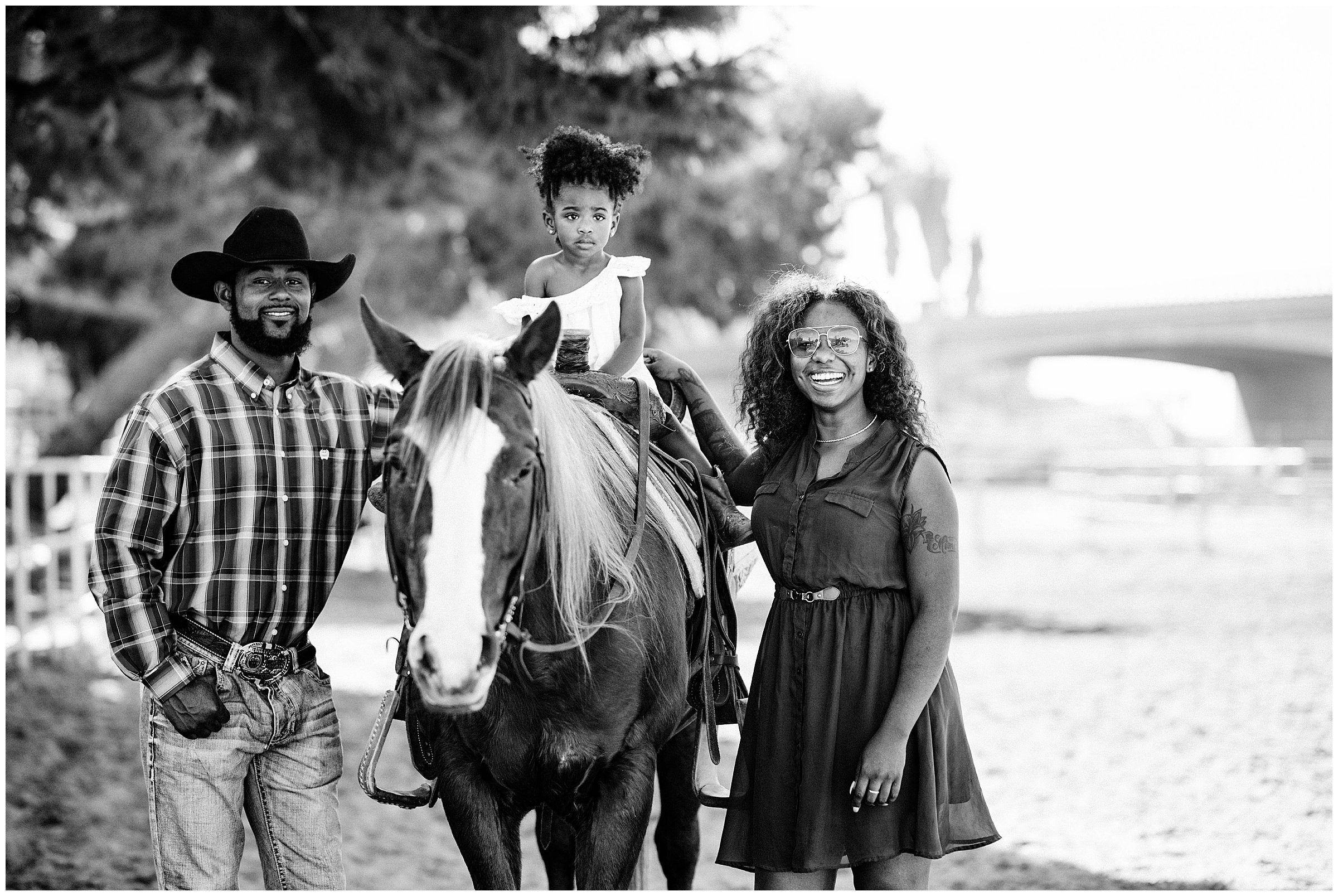
A: In what ways are you hoping to make an impact?
K: in 2018, I started a monthly women’s group. I designed the group around having conversations about us figuring out what our purpose is in life. How to be the best we can be and stop fighting against our purpose. Although that’s on a break now with the stay-at-home order, I want to continue. Right now I send an email once a month talking about different life topics.
I am working to start a non-profit that includes the women’s group, and I also want to start a transitional house, because a lot of people are homeless due to situations that have happened in their lives, and then they give up. I met a man who was homeless when I was 19 years old, and learning his story changed my perspective.
I want to host events where people share about their lives. I have met so many people who have overcome adversities, and they’re so motivating and inspiring. Turning on a lightbulb for someone to feel they can do it too.
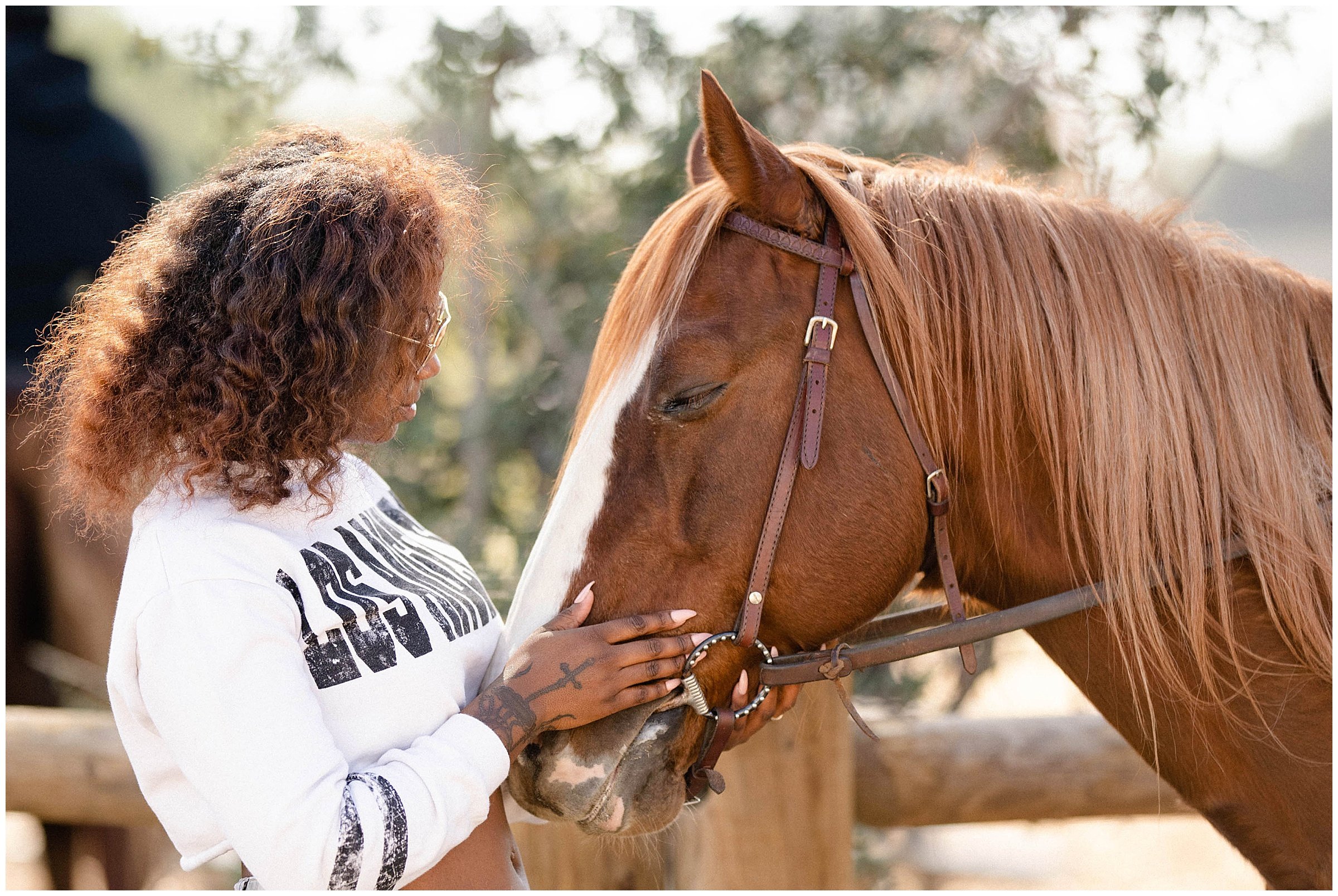
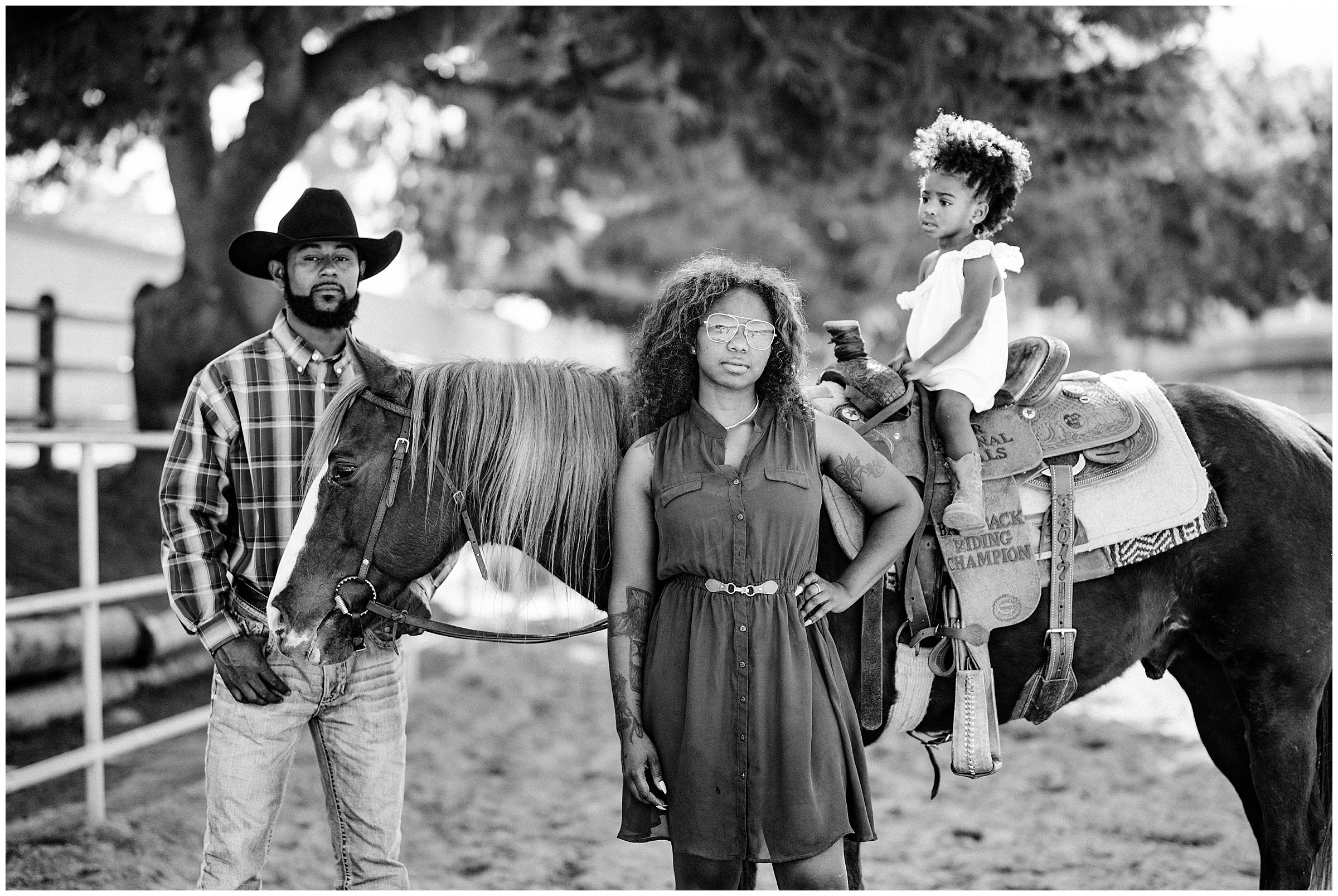
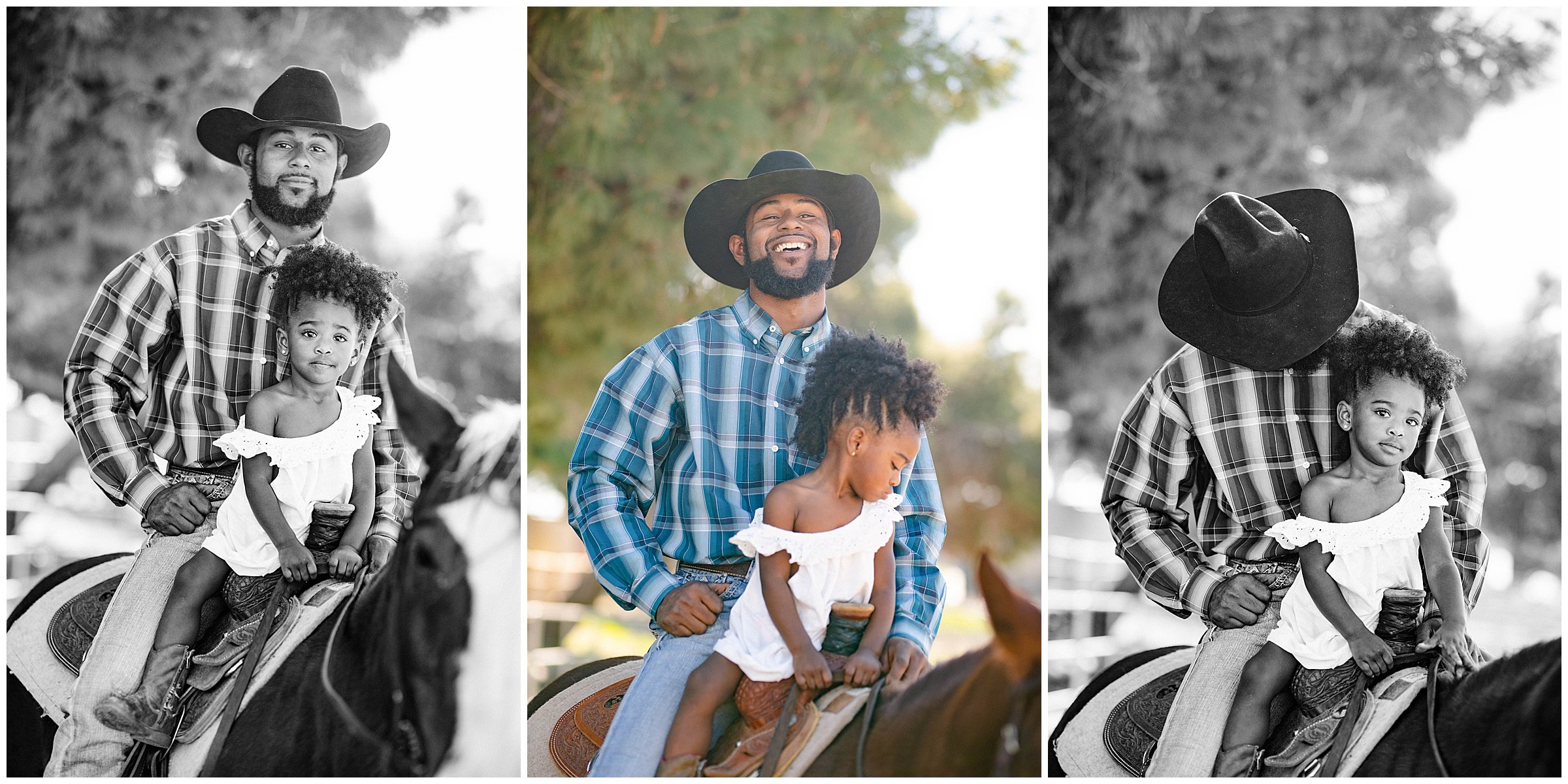
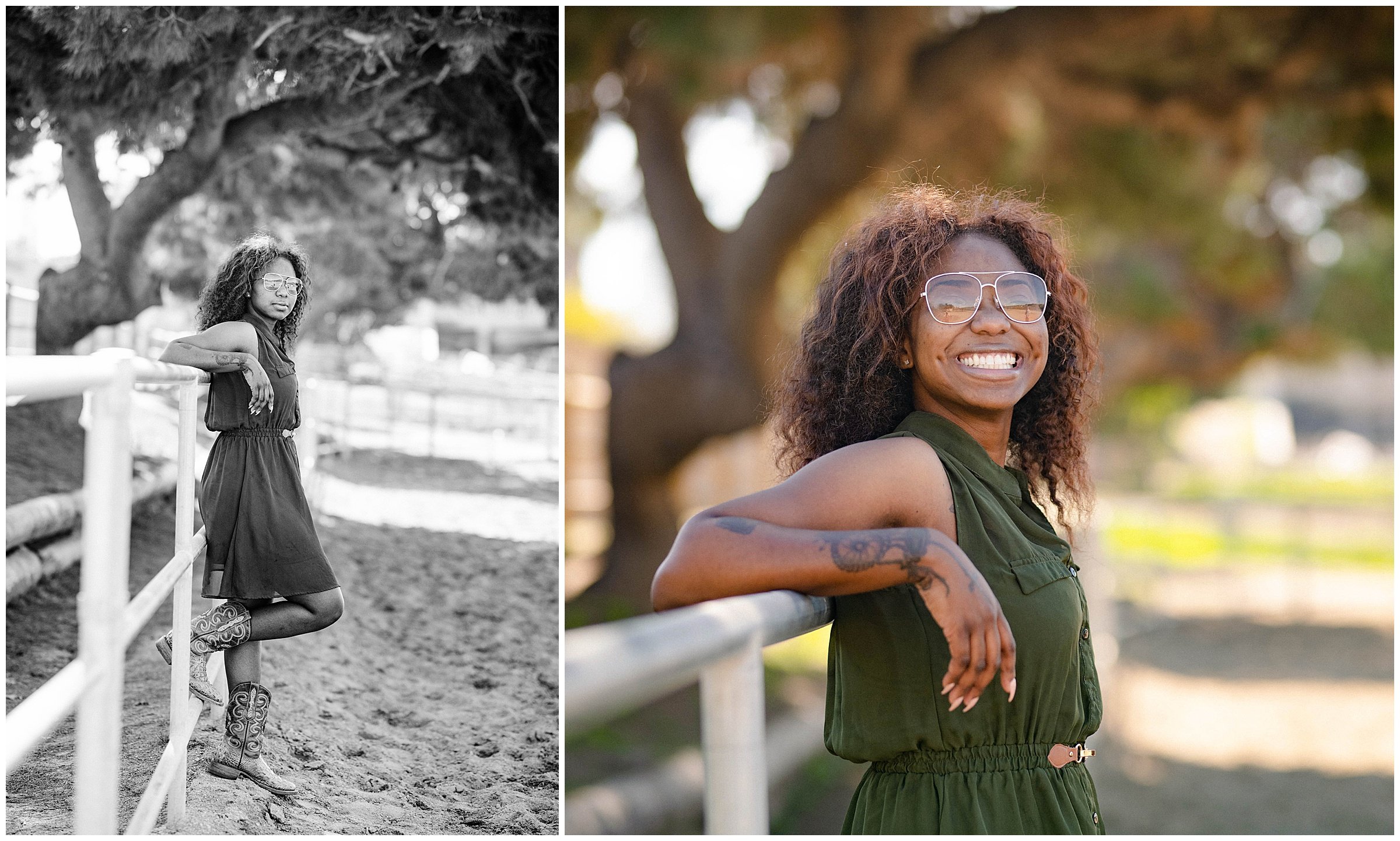
A: This past weekend you and the Compton Cowboys organized a ride that has gotten a lot of attention. I saw photos of you and Taylor everywhere! Can you tell us the inspiration behind this event?
K: This was my first time doing anything like this protest. It touched me to be able to do that and be with so many other people with their horses.
We wanted to ride for peace. That’s what we represent. Our horse community brings us so much peace and joy, and they’re also passionate about what’s going on because it affects our lives. It has affected us for generations, and something has to be done. So we recognize that we have to do it in our own way, in the way that we express ourselves in our everyday lives. We are unity, and we need unity in the world. Standing for the right cause, love, positivity and peace. So we represented for ourselves, but also for our culture.
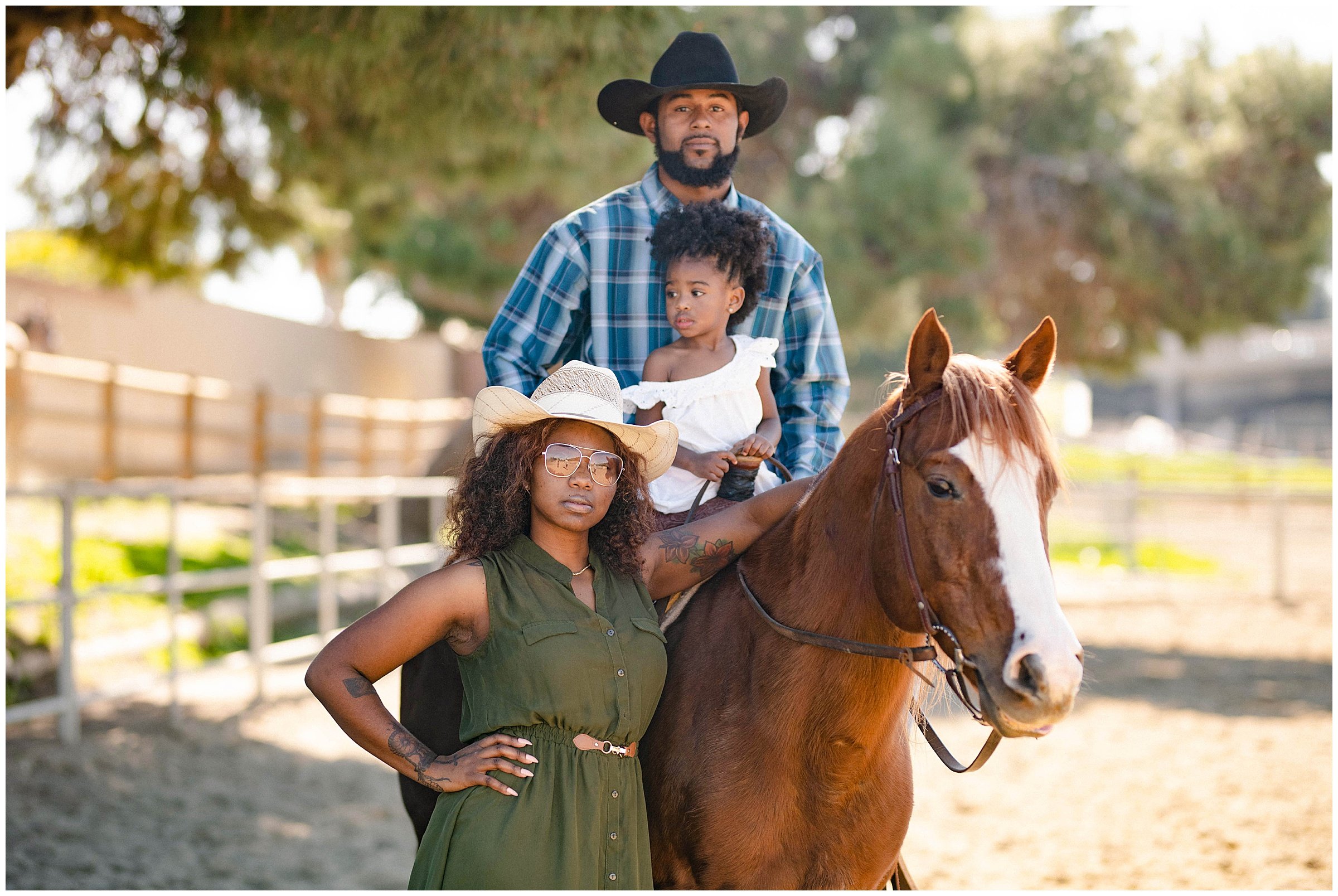
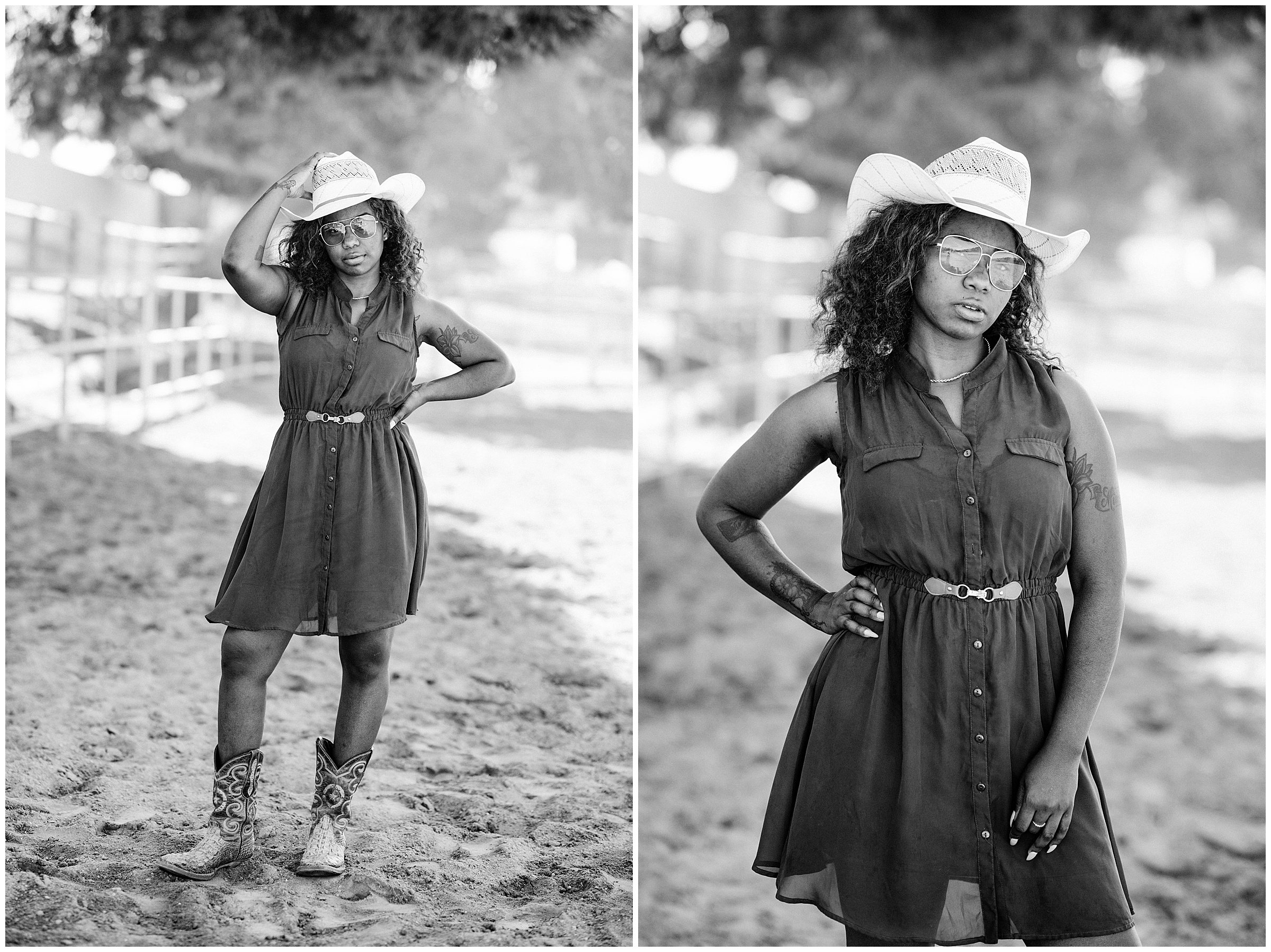
A: Keiara, thanks for taking the time to talk with us today. We will be following you on Instagram to see how your non-profit and other endeavors take shape!
K: Thank you for having me. I hope I’ve been able to touch each of you reading this, and inspire and motivate you.
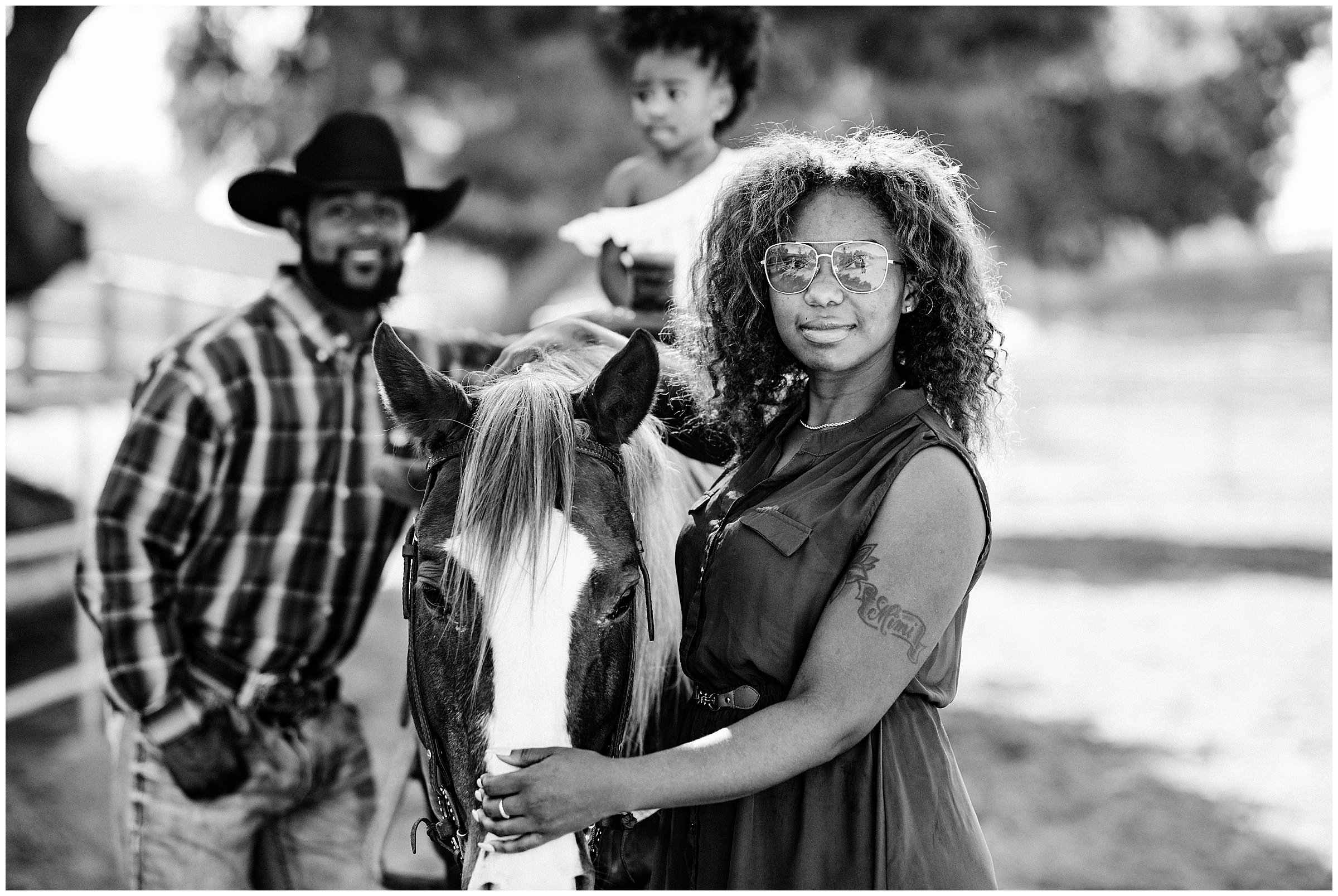
To license these images for commercial or editorial use, please contact us.

